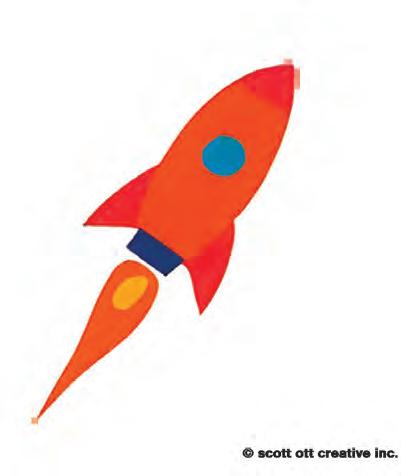
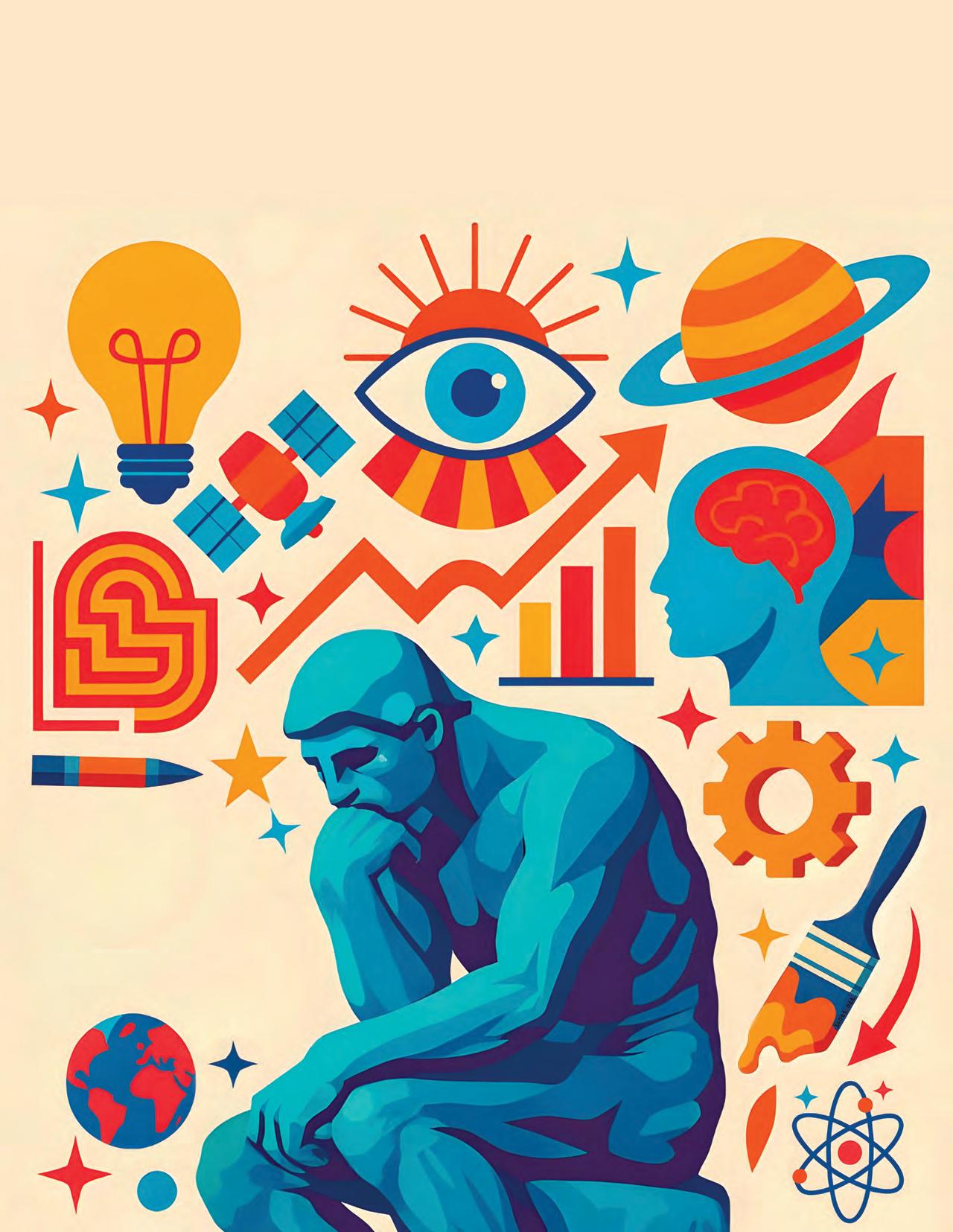



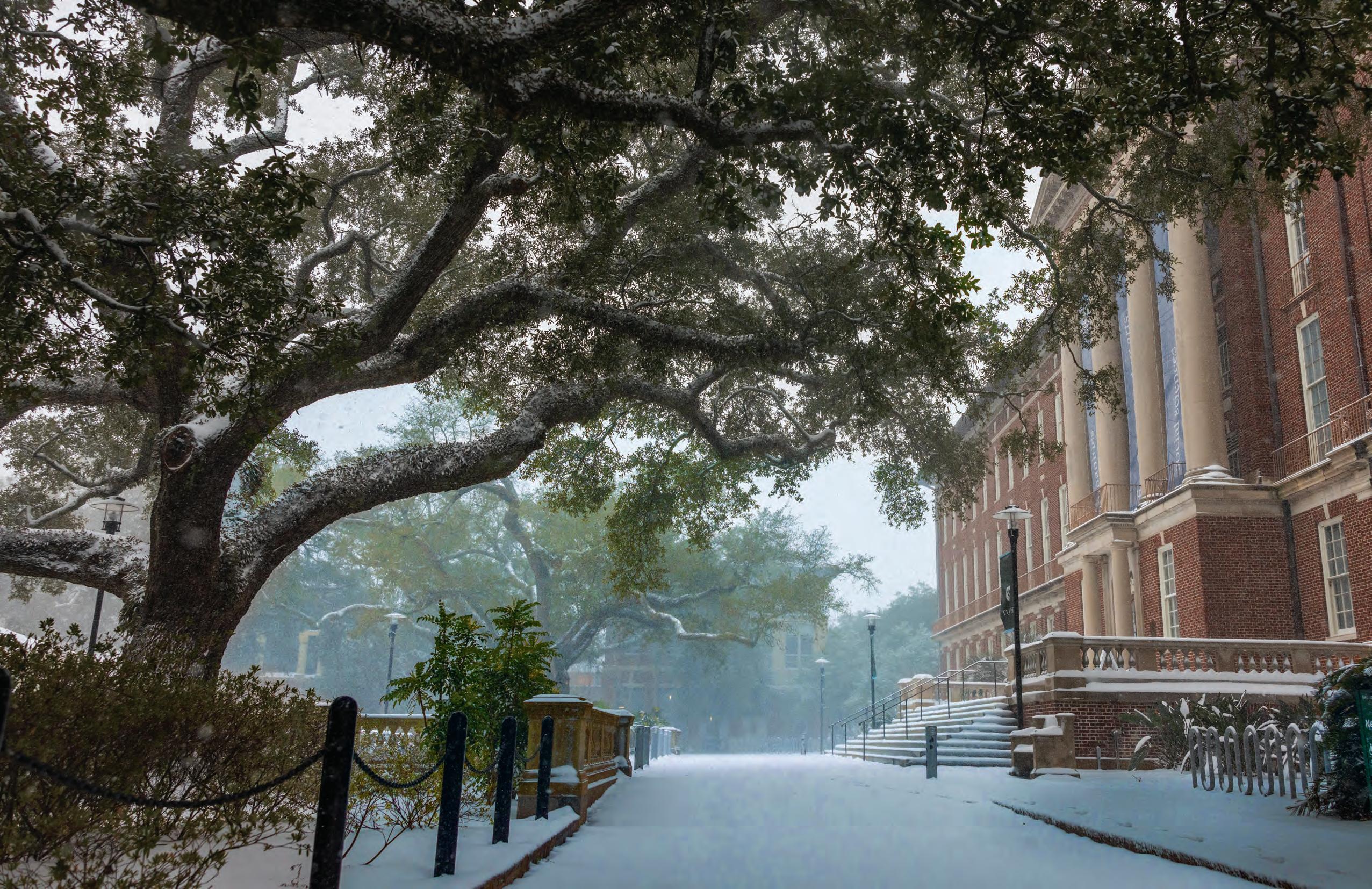
At the School of Liberal Arts, we believe that tackling complex questions head-on is not just what we teach, it is who we are. Though the theme of this issue is “The Great Liberal Arts Debate,” we do not intend for it to deliver a singular, definitive answer. Instead, we invite you to reflect on your own Tulane journey — the courses, conversations, and ‘aha!’ moments that defined your liberal arts experience. Did your path emphasize a foundation of history, data, and essential facts; gravitate toward interdisciplinary problem-solving and thinking outside the box; or perhaps a compelling blend of both?
Within these pages, you’ll find diverse perspectives and insights from our faculty, students, and alumni who are actively shaping the future of the humanities, social sciences, and fine and performing arts. We explore how critical thinking, honed through deep engagement with history, philosophy, literature, and social theory, equips our graduates to navigate uncharted professional territories and address society’s most pressing challenges.
This issue is an invitation to lean into the conversation, to challenge assumptions, and to reaffirm all that is encompassed by a liberal arts education. The very skills debated — the capacity to analyze, innovate, and communicate — are precisely what allow us to engage in such a profound societal discussion. We hope you’ll find inspiration to craft your own answer to this great debate.
Thank you for joining us in this exploration.
BRIAN
THOMAS ALBRECHT THOMAS BELLER
RONNA BURGER
MARIA CORDERO
SHENNETTE GARRETT-SCOTT
SOPHIA GUTIERREZ
DOUGLAS N. HARRIS
BARBARA JAZWINSKI
MICHAEL KUCZYNSKI
NGHANA LEWIS
JANA LIPMAN
SUSANN LUSNIA
JENNIFER MILLS
SHERRICE MOJGANI
STEPHEN OSTERTAG JOHN STRASBURGER
WADE
SAEKO YATSUKA-JENSEN FAN ZHANG
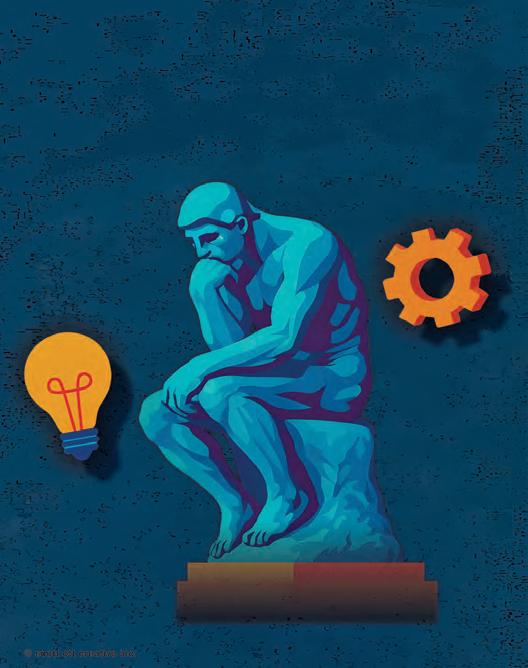
THE GREAT LIBERAL ARTS DEBATE
by Brian T. Edwards

AN APTITUDE FOR TRANSFORMATION by
ASSOCIATE
ASSOCIATE
ASSOCIATE
ASSOCIATE
ASSISTANT
by Douglas N. Harris
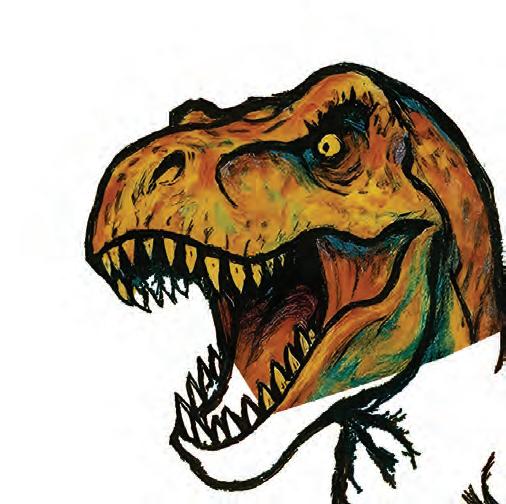
Shennette Garrett-Scott
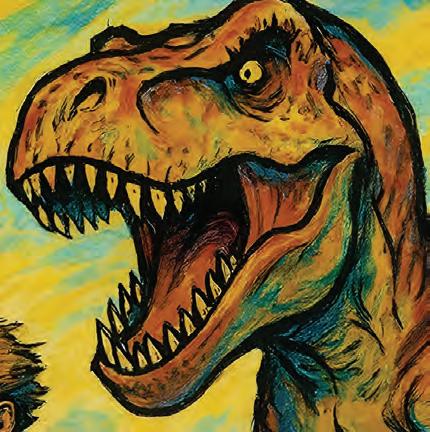
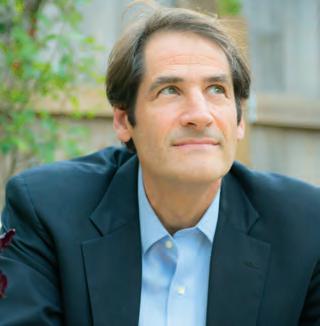
CONVERSATIONS IN THE AGE OF AI by Thomas
Beller
Susann Lusnia
PROBLEMS by
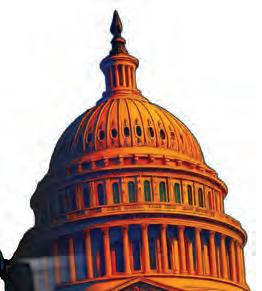
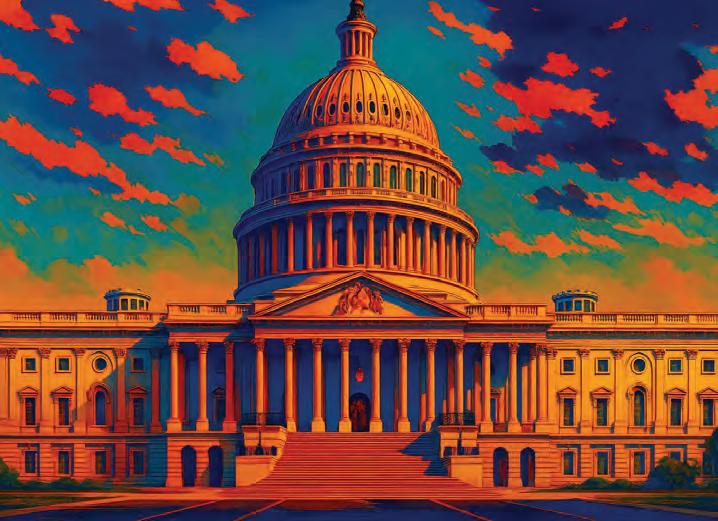
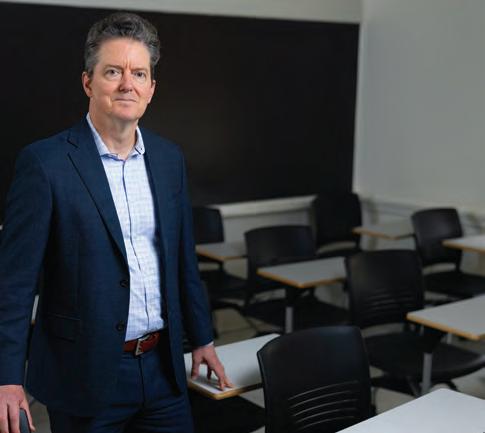
You might be wondering,
“Which debat
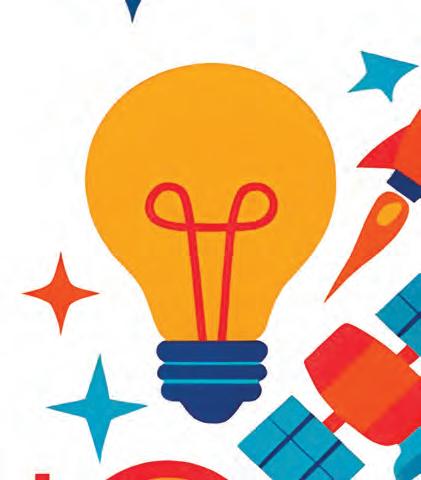
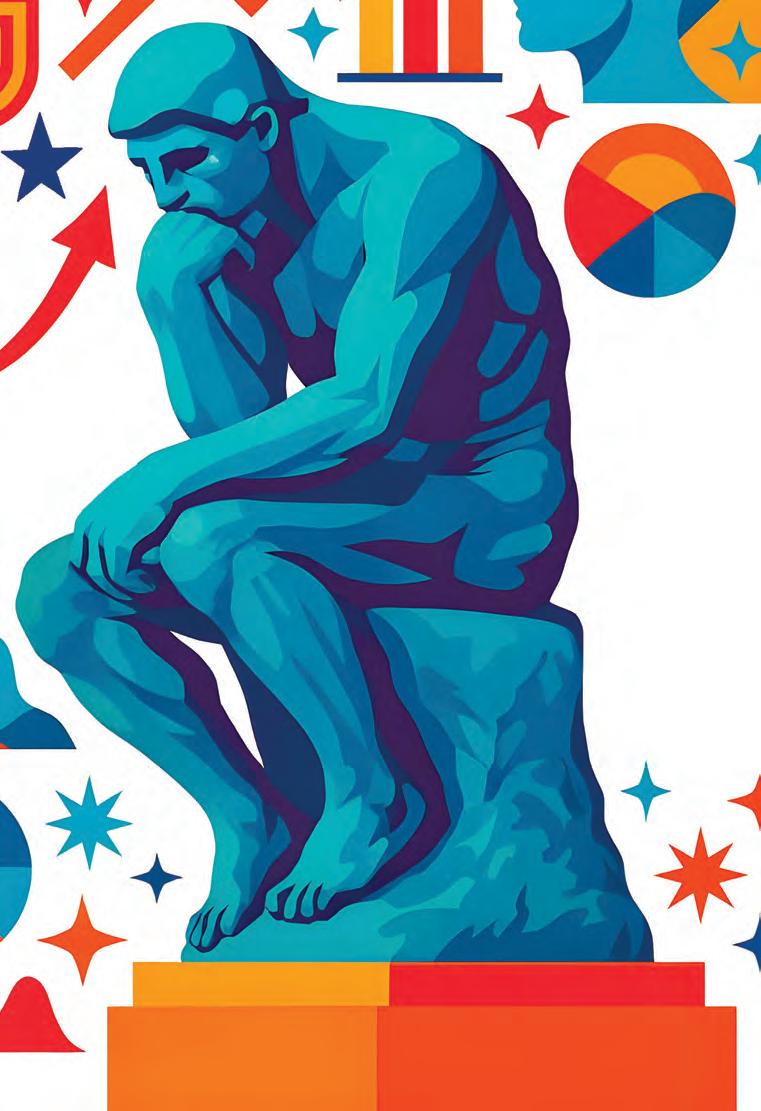
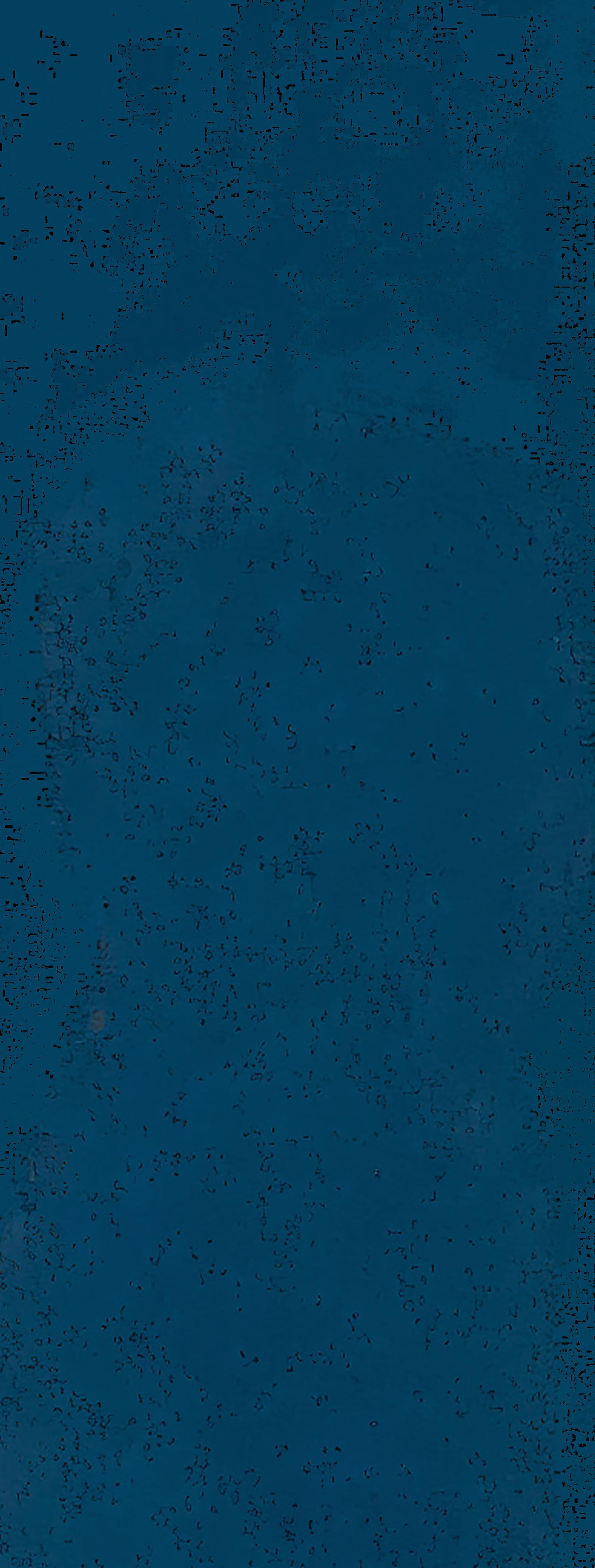
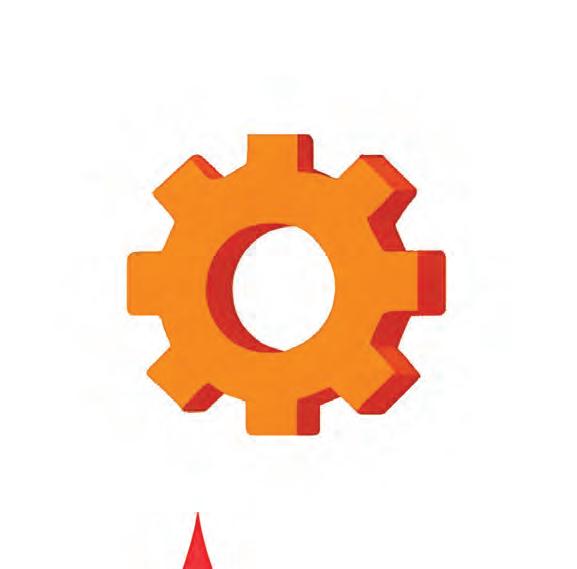
Or maybe ever end?”
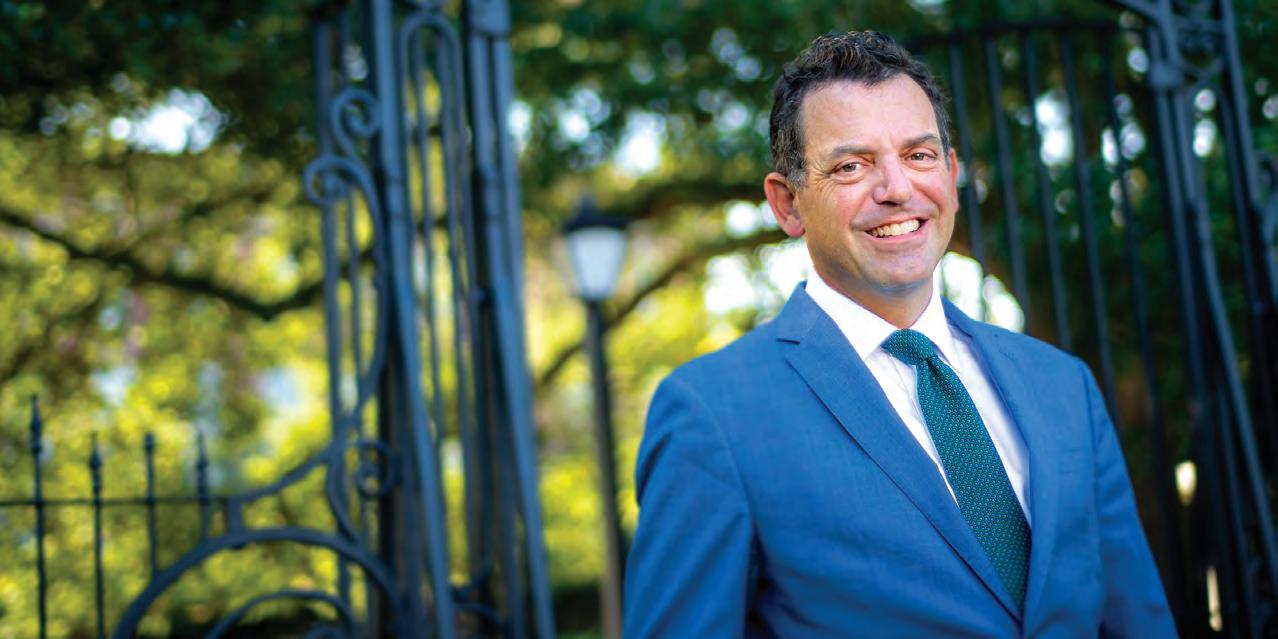
Meanwhile, artificial intelligence promises to summarize complex arguments, to write faster, and to do higher-order thinking in a matter of seconds, pulling the carpet out from under the feet of educators and students alike. The hostilities have entered a new stage.
But if there is a public debate about higher education, inside universities there is another animated discussion about how or why the liberal arts matter. I call this the “Great Liberal Arts Debate.” Not everyone working in the humanities and social sciences is engaged actively in this conversation. Indeed, I am hoping to provoke a more open dialogue. I fear many of us have slipped into easy assumptions about the work we are doing. Too much is at stake not to reconsider the question with rigor.
of that era, when books such as The Closing of the American Mind by Chicago classicist Allan Bloom and Cultural Literacy by E.D. Hirsch were national best sellers. In those years, traditionalists recoiled from the expansion of the canon and the revision of the core curriculum at schools such as Columbia or Stanford, where the battles were fierce.
On the other side, those who fought for what philosopher Charles Taylor called “the politics of recognition” suggested that an acknowledgment of the multicultural basis of American society and a non-hierarchical appreciation for world cultures warranted profound changes in what students learned.
Wherever you fall on the question, it’s clear we’re in the middle of another major battle in the culture wars. Over the past year, the challenges posed to liberal arts education have become particularly fierce. Government cuts have left thousands of scholars of the humanities, social sciences, and arts without funding to continue their research — federal grants abruptly revoked in midstream — and put many academics on the defensive to justify their work.
And though much about higher education has become politicized, the fault lines here do not divide across traditional political lines.
That was not always the case. Readers who went to college in the 1980s or early 1990s might recall the culture wars
Both sides, nonetheless, believed that students needed to read specific content. Whether or not Samuel Taylor Coleridge got bumped from the English literary survey for Olaudah Equiano, or Saul Bellow from the American survey for Toni Morrison, there were common texts to be read. The sides just couldn’t agree on what they were.
As those debates rippled through liberal arts colleges and universities, including Tulane, the pressure on which texts to hold on to, if any, increased. In the last two decades, a perfect storm of forces — the economic crises of 2008 and 2020-21, the impact of the digital revolution and AI, and skyrocketing costs for undergraduate education — put pressure on educators to justify the value proposition of the liberal arts.
Over the last year, figures such as Christopher Rufo, Peter Thiel, and Stephen Miller rose in influence. Their crusaderlike critiques of higher education brought this pressure to an existential level. And that’s where the great debate takes a new turn.
What, then, is the value of a liberal arts education? Let’s take a step back and employ liberal arts thinking to approach the problem itself.
First order of business is how we frame our arguments and the logics by which we defend our significance. Defenders of the liberal arts congregate around two poles. For the sake of shorthand, let’s call one a focus on content and the other an emphasis on aptitudes.
Do the disciplines and their core texts — if we could agree on them — matter in and of themselves? Or are our greatest attributes the critical thinking, communication skills, and creative problem solving that a liberal education seems uniquely suited to provide?
These debates are hardly new. They go back at least as far as Plato’s famous allegory of the cave and his delineation of the essential and foundational disciplines of an ideal education. The so-called trivium of Grammar, Logic, and Rhetoric undergirded upper-level disciplines of Arithmetic, Geometry, Music, and Astronomy (the quadrivium). And those, in turn, would form the basis for “practical” education in disciplines such as Medicine or Architecture — what we would today call professional education.
Two-and-a-half centuries after Plato’s death, Cicero gave us the term “liberal arts” in the service of an argument for what kind of education was good for the health of the Republic itself. For the Roman statesman and orator, free-thinking citizens were those who had been educated broadly in Philosophy, History, and Rhetoric, and these in turn would provide political and moral stability.
In the early republic of the United States, this thinking led several of the Founders to argue for the establishment of a national university — Washington left a bequest in his own will for this purpose. Thomas Jefferson, Benjamin Franklin, and physician Benjamin Rush variously argued that a stable democracy relied on an educated citizenry. While there were differences in the details (in his prescriptions for education, Franklin included Commerce and the “Useful” alongside fields that focused on the “Ornamental,” whereas Jefferson placed greater emphasis on the classics), the general parameters resonate profoundly with the liberal arts approach we champion at Tulane today. So, what happened?

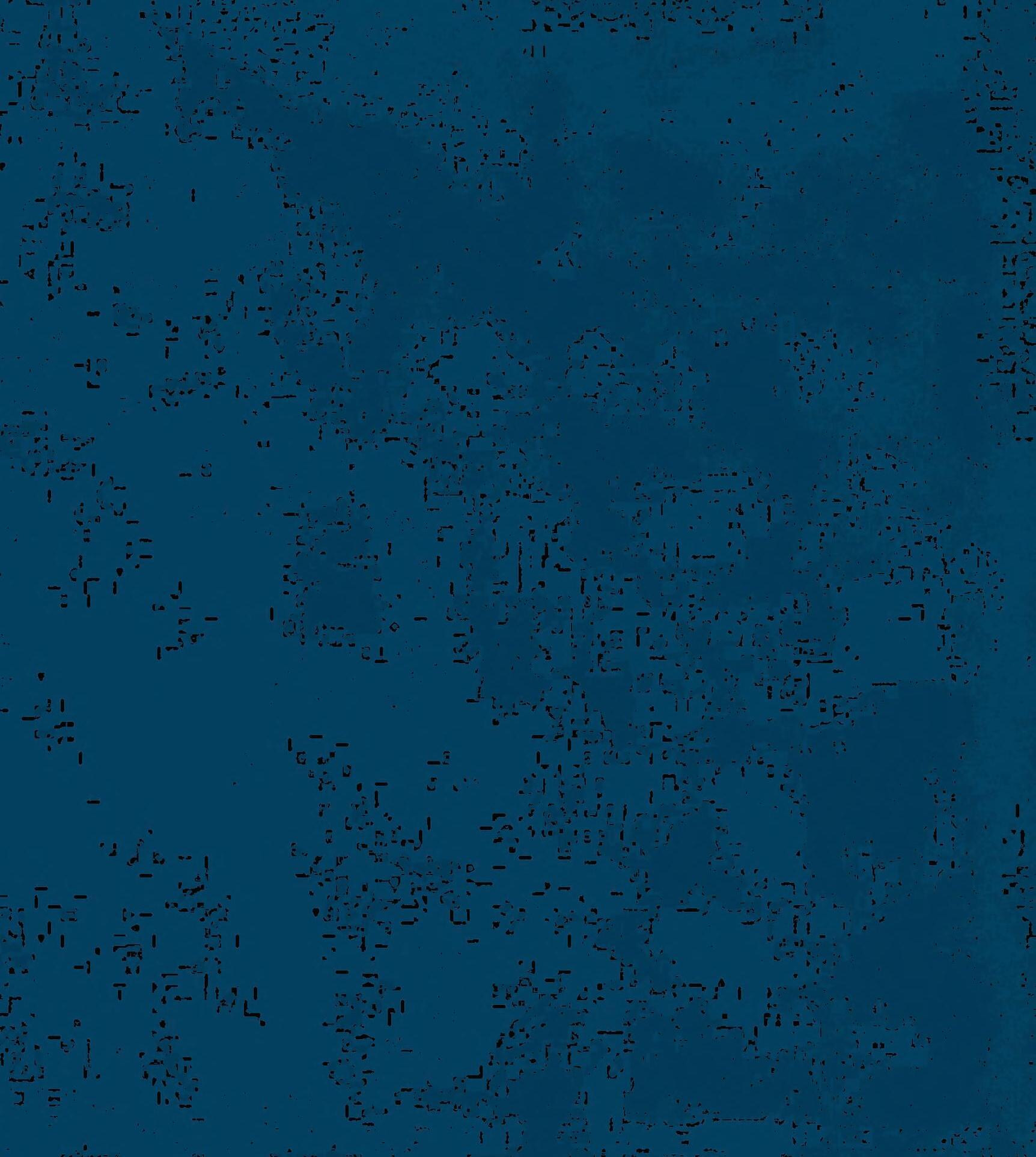
And for the student, what major or discipline is the best pathway to success, however we define it? I frequently encourage students to follow their passions and proclivities and to feel confident that they are not mortgaging their futures by so doing.
This is the “great debate” in a nutshell. Does it matter what we teach and, more importantly, what students learn for the content, or for the patterns of thinking that the liberal arts cultivate, from Philosophy to Economics, from the reading of poetry to the study of algorithmic thinking (which is how I understand Computer Science as a liberal art), or from Music Theory and Harmonics (part of the original quadrivium!) to labor history?
At Tulane’s School of Liberal Arts, you will find a range of opinions across the faculty.
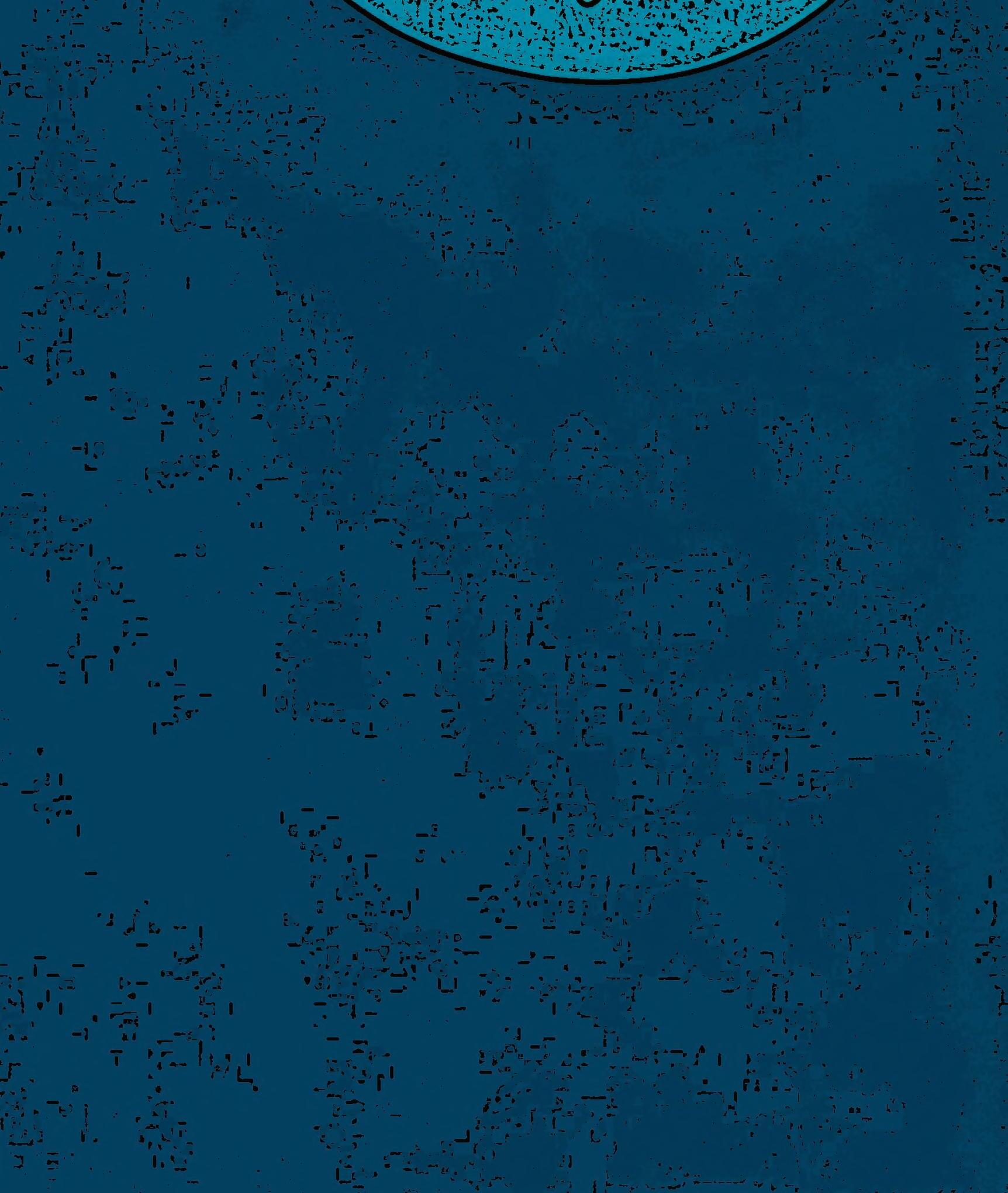
In my list of the classical disciplines, you might note that some are still with us, while others have receded in importance. Today’s Tulane student can still study Logic and Music, for example, but a major in Grammar would be untenable. Many of the core liberal arts disciplines of today emerged during the 19th and 20th centuries, when fields such as Economics, Anthropology, Sociology, Political Science, and Communication were established and elaborated. (Political Science, Economics, and Communication are our three most popular majors.)
But it is more than the proliferation of disciplines that forces the great debate. While our departments focus necessarily on different content, they are better understood as differing approaches and methodologies for understanding the world, society, and human meaning-making.
How do professors decide what is important for their students to study? Every choice of what to put on a syllabus is underwritten by a belief that some content is more important than others.
Should there be a common core, as literary scholar Michael Kuczynski argues in this issue, whether it is based around the Western canon or an expanded set of texts and authors? Or does a liberal education do its magic by focusing on aptitudes — including critical thinking, communication, civics, citizenship, and collaboration — that can be learned in a wide range of fields in the social sciences and humanities, as classicist Susann Lusnia argues? That would seem to be the basis of economist Doug Harris’s approach to thinking about the “state of the nation,” wherein he brought together experts from across the political spectrum to identify non-partisan measures by which to chart our country’s standing.
Philosopher Ronna Burger takes us in yet another direction and turns the question on its head. Burger argues that it is precisely a specific content — the great books that have occupied thinkers and students for centuries — that allows us to most efficiently and richly develop the aptitudes associated with liberal education. And historian Shennette Garrett-Scott argues that by defining the poles this way at all, we are limiting ourselves from a perspective that would put both in tension.
You might have guessed by now that I am not going to land on one or the other side of this debate. And that’s precisely because of my own commitment to the liberal arts. I admit that my frequently repeated proposition that a liberal arts education is the best training for the careers and challenges of the future has relied on and perpetuated the “aptitudes” pole. Yet our commitment to 32 different departments and programs would suggest a belief in “content”: that there really are specific things students need to know.
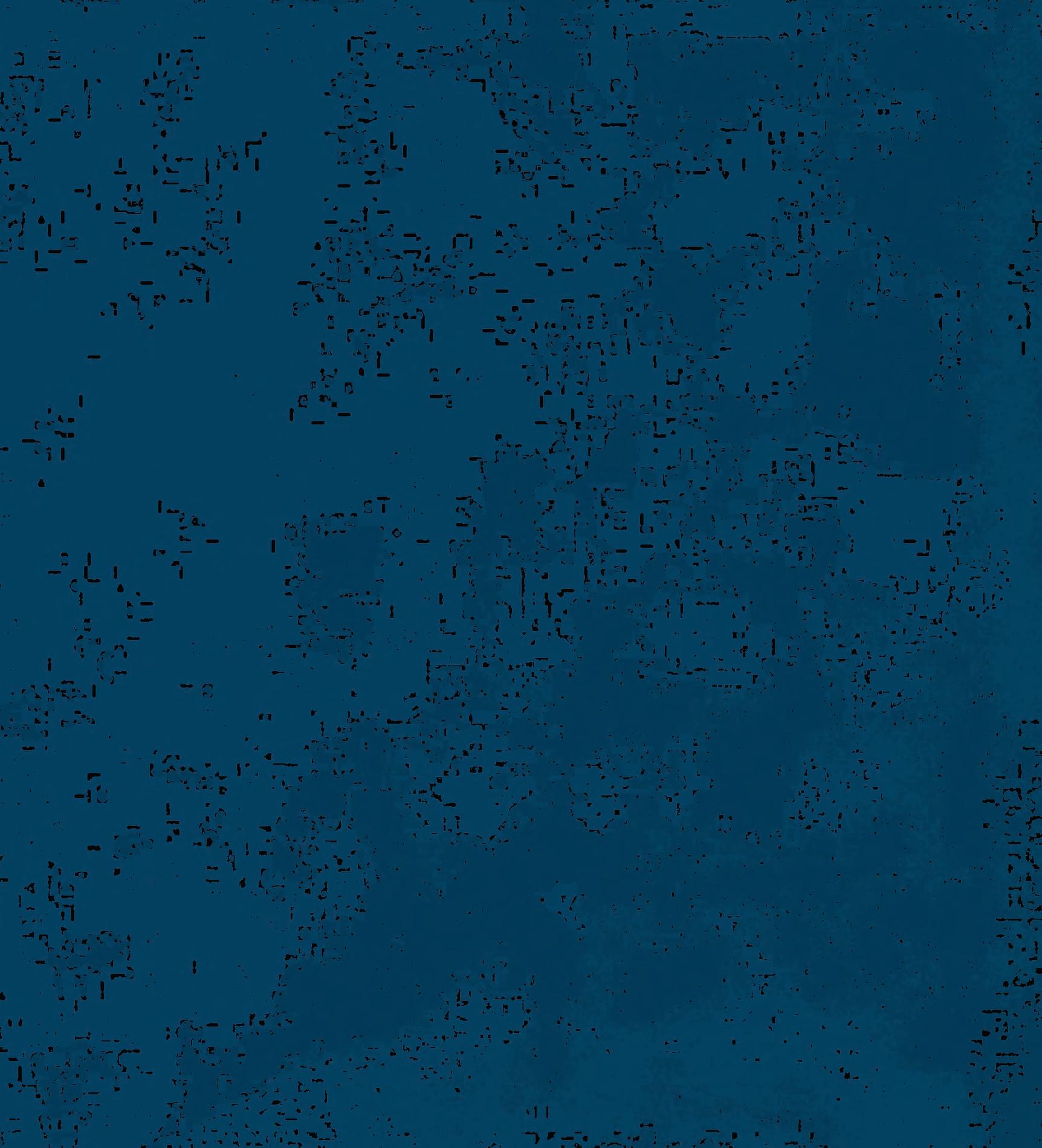
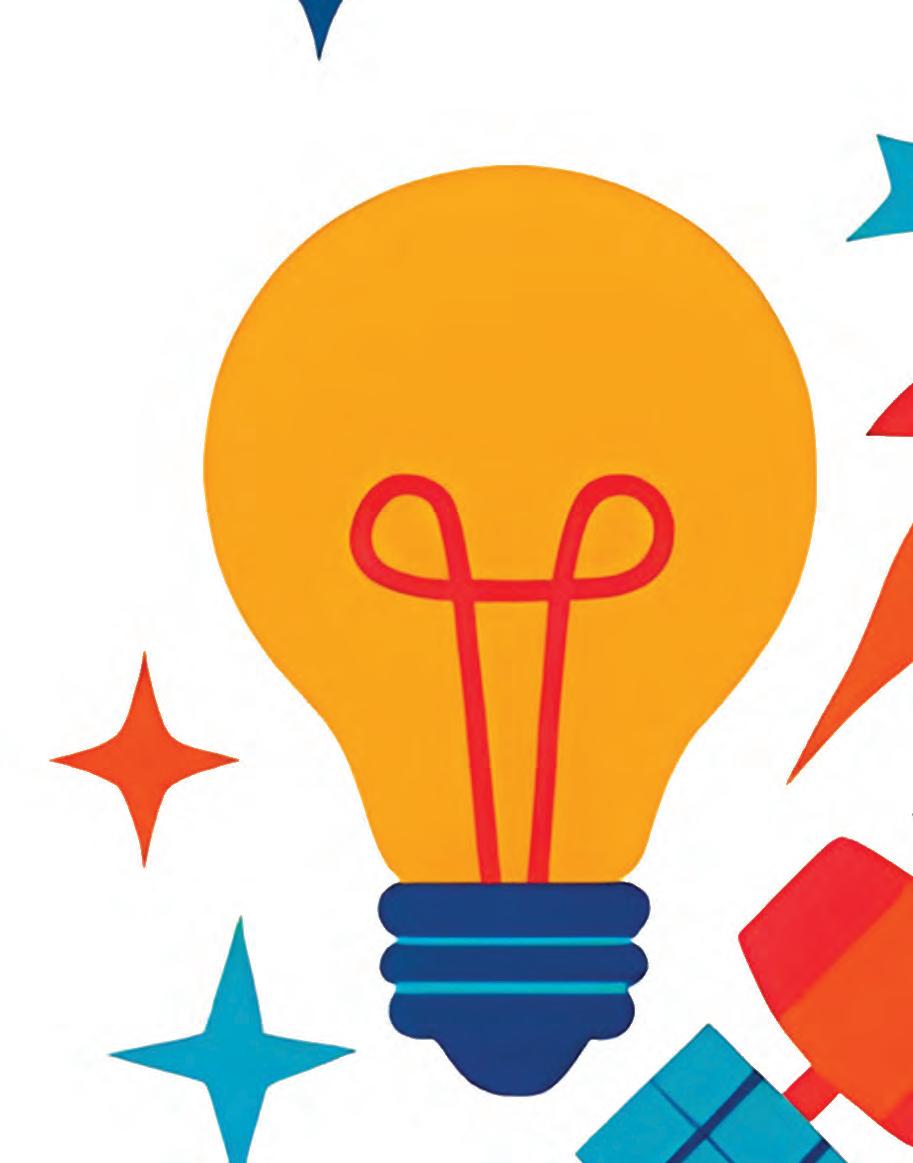
I do believe that there are certain texts and authors that every Tulane student should engage with and key ideas to discuss across a wide range of fields. I am also a champion of language learning and a global approach to the liberal arts, and we have expanded both the range of languages and the world areas that we teach across the school. And so, I resist the argument that we should require any specific curriculum, since every choice comes at the expense of another. Four years is after all a short time. I have had nearly four decades of wide reading and study since I entered college, and I still haven’t caught up.
There are many pathways to problem solving and critical thinking and many inescapable and unavoidable authors and thinkers to grapple with. That is too the joy of the liberal arts — its unpredictability and its inexhaustibility.

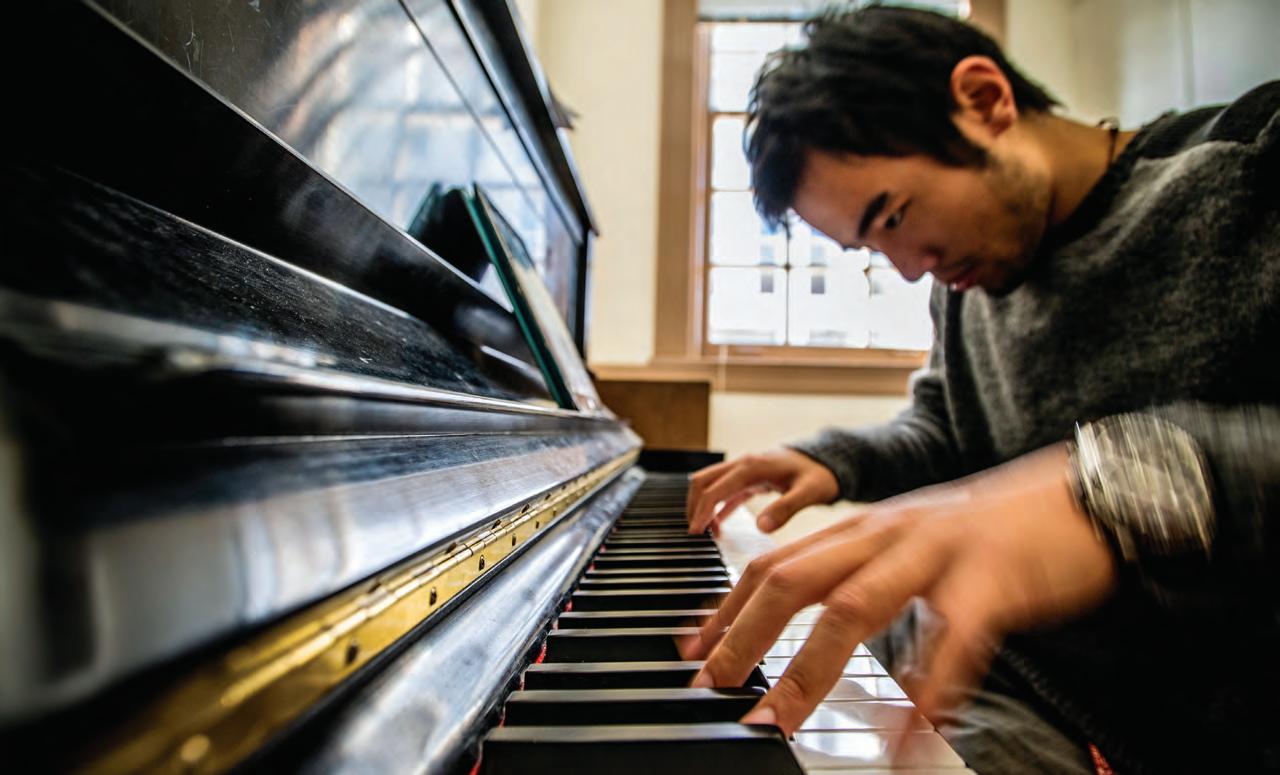
TULANE’S SCHOOL OF LIBERAL ARTS IS COMMITTED TO PROVIDING A DYNAMIC AND RELEVANT EDUCATION THAT PREPARES STUDENTS FOR AN EVOLVING WORLD. OUR RECENTLY UPDATED CURRICULA REFLECT THIS DEDICATION, CREATING NEW DEPARTMENTS, ENHANCED PATHWAYS, AND INNOVATIVE COURSES. THESE STRATEGIC CHANGES UNDERSCORE OUR COMMITMENT TO ACADEMIC EXCELLENCE AND STUDENT SUCCESS IN THE 21ST CENTURY.
The Music Department streamlined its undergraduate major offerings to allow students greater flexibility for course selections while maintaining the ability to specialize in specific areas, such as Composition, Vocal or Instrument Performance, Musical Theatre, Black American Music, and Music & Technology. The Music Department offers a BFA and BA degree program in Music, as well as minors in Music and Music Science & Technology.
In the iconic film the red pill for unsettling truth and awareness, or the blue pill for com fortable ignorance — perfectly sets the tone for my courses. I con vey to students that course content, discussions, and assignments engage uncomfortable truths, which may cause them to feel discomfort.
Among these truths is that the founding of the United States on the ideals of freedom, justice, and representative democ racy, was a human choice and a human experiment; and both the choice and the experiment are consequential to humanity. I tell students that unpacking these truths re quires embracing the reality of human fallibility and hu man possibility, and I use “Query XIV,” from Thomas Jef ferson’s this point.
Building upon one of our Pillars of Distinction — a Global Liberal Arts — we recently introduced new foreign language course offerings in Korean, managed by the Asian Studies program, and Choctaw, managed by the Native American & Indigenous Studies program.
Demonstrating a commitment to the growing academic field, the School of Liberal Arts recently granted departmental status to the interdisciplinary program of Africana Studies. Mia Bagneris will lead this initiative as the inaugural chair of the department.
Our popular Digital Media Practices Program recently revamped and expanded its curriculum to embrace and explore other forms of media, including Podcasting, Screenwriting, and Video Game Design. This flexible and varied curriculum positions students for another of our Pillars of Distinction — Careers of the Future.
Emphasizing the theoretical and historical approaches to cinema — the formal analysis of films, cinema’s ties to new technologies, and cinema’s sociopolitical, economic, and environmental implications — “Film Studies” has evolved into Cinema Studies. Students may pursue either a major or a minor, reflecting the multidisciplinary study of cinema in its global dimensions.
In this document, Jefferson reasons that Black people cannot be “incorporated” into the America experiment and American ideals cannot apply to this population because of white prejudice, black resentment, white superiority, and black inferiority. Jefferson also identifies “language” as “an instrument for the attainment of science.” Untangling, reconciling, and accepting incongruity in the ra cialized geopolitical philosophy and infinite possibilities of language that Jefferson sets forth is work that I tell my students they must be prepared to do.
As well, I encourage them to embrace courses that make con siderable demands on their thinking and restrict their use of generative AI. In these respects, I assure them that taking the red pill translates to an investment of time, intellectual ener gy, and financial resources that will make them freer, bold er readers and independent generators of knowledge.
To me, the value of a liberal arts education lies in the power it gives students. Regardless of their majors or professional aspirations, a liberal arts education pre pares students to reflect critically on their histories, tap into their creativities, and become agents of growth, change, and opportunity
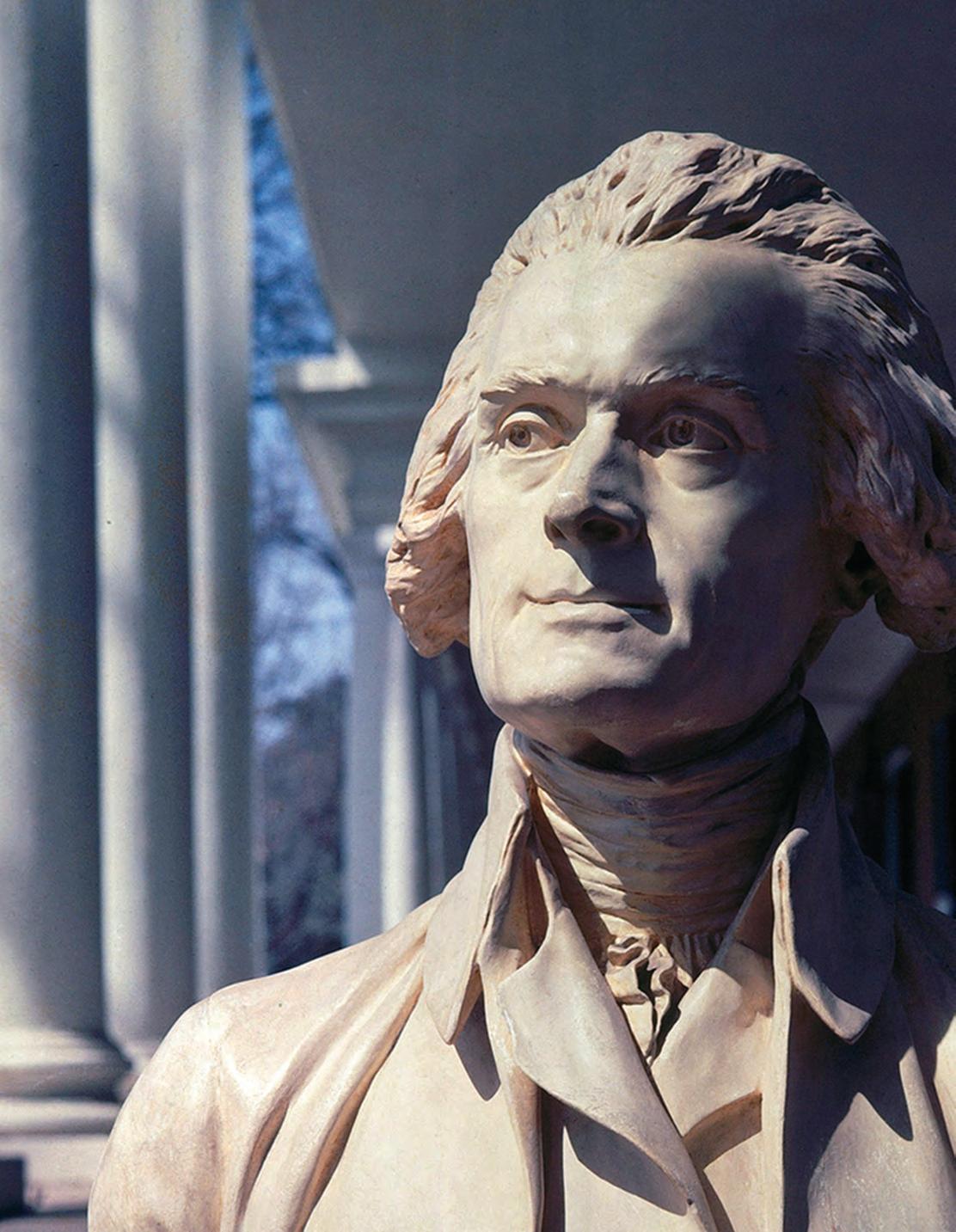
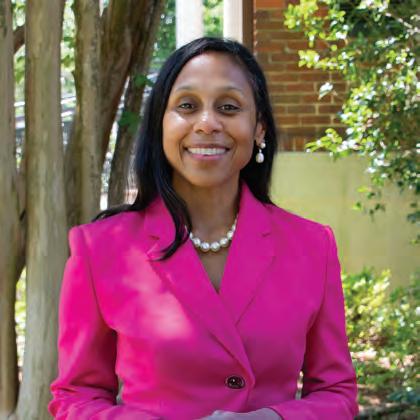
When I was an undergraduate in the late 1970s at a small Jesuit college outside Philadelphia, earning your BA was like getting on the elevated train at the first stop and not disembarking until the last. Study was organized around a humanities “core”: two courses in prose composition (at Tulane, we call this First-Year Writing), three in History, three in Philosophy, three in Theology, and three in foreign languages. Because I was an English major, there were numerous additional requirements in literature, historically arranged, from Chaucer through modern poetry. I was already intrigued by the Middle Ages and interested in becoming a medievalist, so I chose Latin for my language. The rest of the core set me up wonderfully for graduate school.
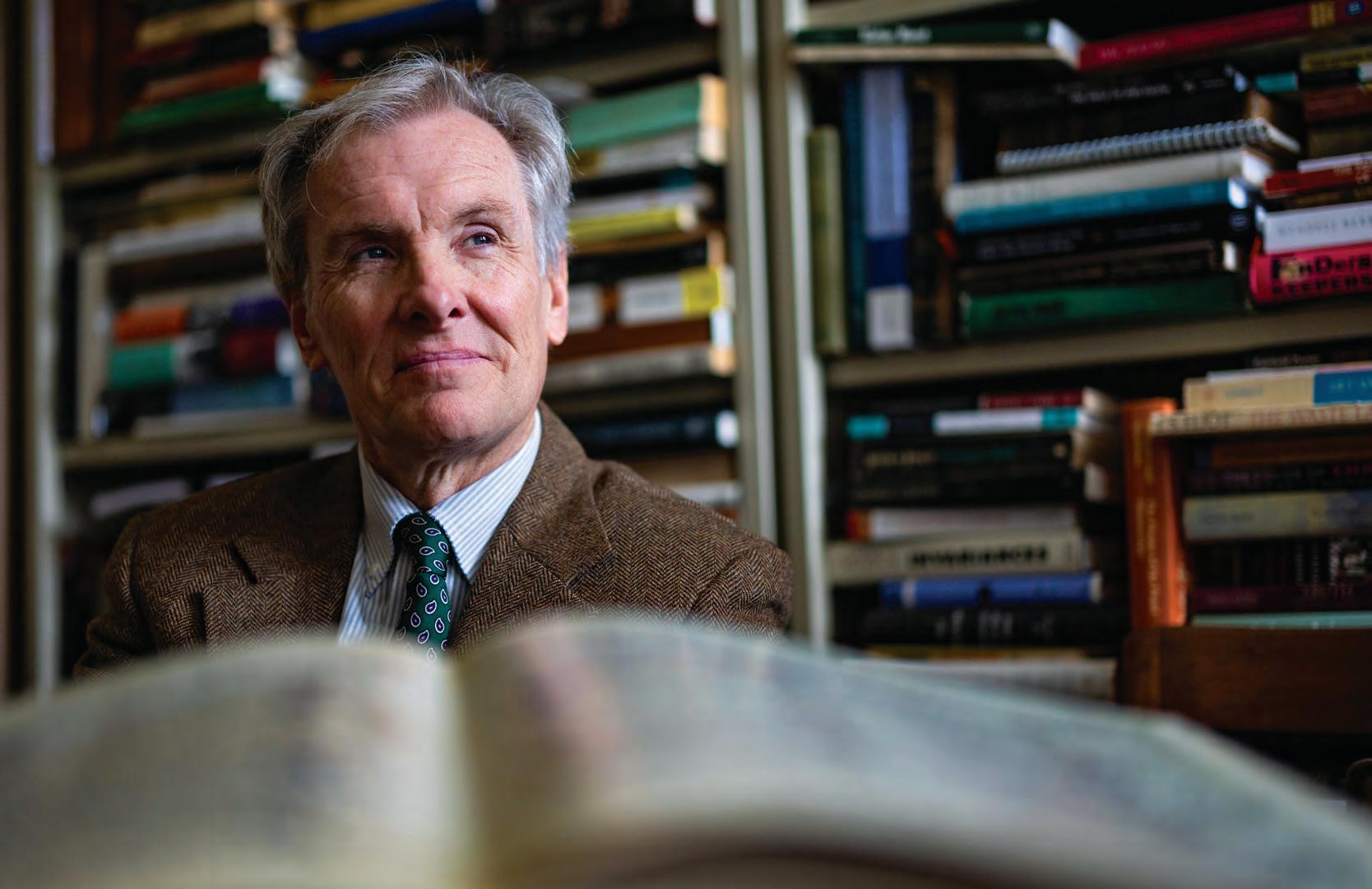
When I got to grad school, I sometimes found myself ahead of my peers because of my undergraduate training. I didn’t have many graduate electives, but that didn’t bother me. After all, I had elected — as a graduate student now — to continue working the core. The microchoices of my education were laid out before me, like a chef’s tasting menu. None of them were bland.
Most colleges and universities no longer offer this kind of core curriculum to either undergraduates or graduate students. I think, however, that the concept of a humanities core and its availability at a place like Tulane makes sense. Tulane combines the appeal of a Research 1 institution with a liberal arts college. Working the core, for faculty and students alike, enhances both those missions.
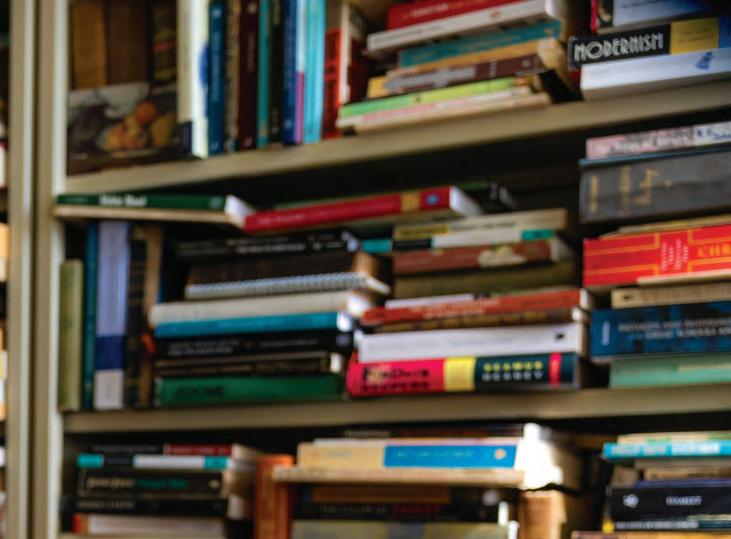
For many excellent reasons, students want more choices, especially across the undergraduate curriculum — and the core appears to restrict choice. The original core was popular at Columbia University after World War I, as a way of ensuring that all students received a basic grounding in what were regarded as the “classics” of Western thought and writing. The names of core authors are inscribed around the outside of Butler Library, a site of student activism since the 1960s. The marble lineup is exclusively male and Eurocentric. I once heard someone refer to it cynically as a tombstone. I’d argue, however, that working the core for many years has in fact enlivened and strengthened it: Certain muscles that the corpus of American education never knew it had, have become manifest. During the 19th century, figures such as Ralph Waldo Emerson, Margaret Fuller, and Henry David Thoreau, whose educational programs were steeped in Latin and Greek, also advocated for the study of modern Western languages and literature — and for the editing, translation, analysis, and emulation of various Eastern texts, such as the Bhagavad Gita. That rebel Thoreau demonstrates, throughout Walden, how the discipline of studying classical languages is liberating rather than confining. In Columbia’s core today, Toni Morrison stands alongside Homer, Gandhi accompanies Plato, and Andy Warhol hangs with Raphael. What is required in the 2020s is more representative and various than in the early 1900s, in part because the original core stimulated the intelligence of those who submitted to it and encouraged a critical examination of the concept of “value.”
The other day, I was reflecting on how, in each of my core classes as an undergraduate, two figures were mentioned so regularly that they might have been enrolled as my fellow students: Freud and Marx. I am neither a Freudian nor a Marxist, but I learned an immense amount from hearing my professors — some Jesuits, others lay people — apply the ideas of these two monumental thinkers to the interpretation of lit-
erary texts. I never felt, in reading them, or Milton, or Thomas Aquinas, that I was being “indoctrinated.” I remember in particular reading a short book, Hamlet and Oedipus, first published in 1949 by a disciple of Freud, Ernst Jones. I’d obsessed over these core dramas before, but never thought of them together. Jones’s approach changed my imaginative engagement with Shakespeare and Sophocles for the better. I also remember reading Hard Times, Dickens’s novel about industrialized education, in the same class in which I read an abridged version of Marx’s masterpiece, Capital, and the full text of Darwin’s Origin of Species. At the end of the course, I was an avid student of fiction alongside nonfiction, and vice versa. My education in the core had helped me to escape the mechanical approach to life and learning that is encouraged at the corporate school in Hard Times — run by Mr. Gradgrind and supervised by his master teacher, Mr. M’Choakumchild. Proponents of AI in higher education, beware!
Some teachers and students of the core were undoubtedly more elitist and exclusivist than others. But for those of us who worked the core properly — in both a disciplined and enlightened way — its boundaries also became vistas. I am currently writing a book entitled White Jesus, about how one of the most influential figures in human history, an itinerant Middle Eastern preacher, became Europeanized during the medieval and early modern periods, in literature, theology, and the visual arts. I would not have been able to imagine such a book, let alone write it, without my training in the core. Working the classical core enabled me, as it has many others, to look imaginatively beyond it.
Michael Kuczynski is the Pierce Butler Chair and professor of English. He specializes in Middle English literature (especially Chaucer), intersections between religion and literature in medieval and early modern England, and the relationship between poetry and the visual arts.
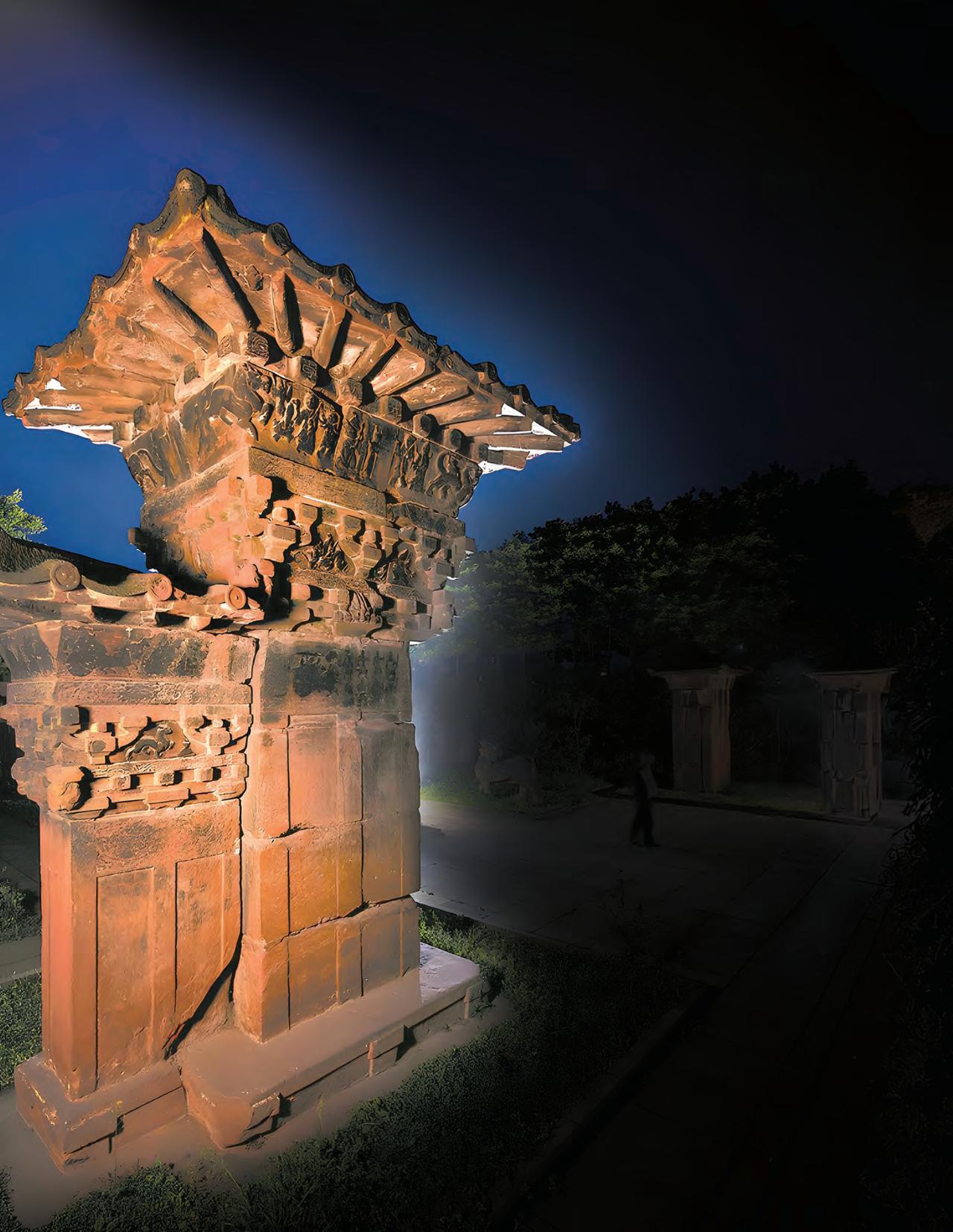
Long before it became the focus of her fieldwork and current book project, Fan Zhang was drawn to ancient burial sites. Growing up in Chengdu, a city in Southwestern China, she remembers riding her bike to the royal tomb of a Ming dynasty prince and taking the bus to the Bronze-Age burial pits of Sanxingdui. “The most fun trips I remember were not to zoos or amusement parks,” she says, “but to burial sites and ancient remains.”
Today, Zhang is an assistant professor in Asian Art and holds the Jessie J. Poesch Professorship in Art at Tulane. As an art historian, she specializes in the material culture of early medieval China. Her book-in-progress, A Center on the Border: Migration, Identity, and Cosmopolitanism in Fifth-Century Chinese Art, explores the mortuary art of 300 burial sites in Pingcheng, a city in Northern China that served both as the capital of the Northern Wei dynasty (386–534) and as a border between nomadic steppes and China proper. Rather than focus on the distinction — and tension — between the Han Chinese and the nomads in Pingcheng, as traditional historiographies have done before, Zhang’s project reveals a more nuanced story of cultural pluralism, and of the creativity and innovation that emerged out of this transcultural exchange.
Zhang has come a long way from her childhood wanderings. Her research has earned support from prestigious institutions, including a 2025 Mellon Fellowship at the Institute for Advanced Study (IAS) at Princeton, a nearly $50,000 Award to Louisiana Artists & Scholars (ATLAS) grant from the Louisiana Board of Regents, and upcoming residencies at the Chinese University of Hong Kong and Fudan University. Though her process now includes archival research, months spent in the field, and collaboration with local scholars, she maintains a sense of wonder and excitement in her work.
One striking discovery was the tomb of Han Farong, a woman of a non-noble background who, despite the plain appearance of her tomb, was buried with an extraordinary set of jewelry, including a necklace of over 4,000
Indo-Pacific beads and an intricate pair of gold earrings designed with Indo-Bactrian motifs. The jewelry, Zhang explains, shows the cosmopolitan fashion at Pingcheng — that luxury goods and the foreign exotic were not restricted to royals or aristocrats, but were likely available to any city dwellers who could afford them.
She is also working on a 3D model of the tomb of Lady Poduoluo, a member of a non-Han ethnic group whose funerary portraits depict her seated equally with her husband — in distinct contrast to typically male-centered Han Chinese funerary art. The couple’s clothing blends Han and Xianbei styles, and Buddhist references appear in the mural composition. Dominating historical narratives assume the nomads simply assimilating into Han Chinese culture, but such findings prove the syncretism of cultures and give agency to the immigrants who played an important role in China’s artistic development and history.
When Zhang first left China to pursue her PhD at the Institute for the Study of the Ancient World (ISAW), New York University, she experienced a shift in identity — from a member of the dominate majority in China, as Han Chinese herself, to a minority group in the United States. “This led me to consider the relationship of ‘us’ and ‘other,’ and the shifting and multiple identities one could have,” she says. In New York City, she experienced “true cosmopolitanism,” and began understanding the mechanism of cities as a place “where people from diverse backgrounds share the urban space and create something extraordinary and impossible for a closed society.”
Zhang sees border cities — particularly those like Pingcheng — not as sites of division, but as “contact zones for cultural interaction.” She hopes that this book will highlight the unique position of all borders, and emphasize migration as key to artistic innovation. Rooted in her love of fieldwork is the desire to eschew simple definitions, embrace complexity, and question our definitions of “center” and “periphery.” “I focus on individuals who facilitated and embodied these interactions, rather than label them generally,” she explains. “By investigating individual burial remains, it reveals a more nuanced picture than the binary divisions.”
Fan Zhang holds the Jessie J. Poesch Professorship in Art, is an assistant professor in Asian Art at the Newcomb Art Department, a core faculty member of Tulane’s Asian Studies Program, and an affiliated faculty member of the Medieval and Early Modern Studies Program (MEMS). Her teaching encompasses a diverse range of subjects, including East Asian art, Silk Road studies, Chinese funerary art, Buddhist art, material culture, and women and gender.
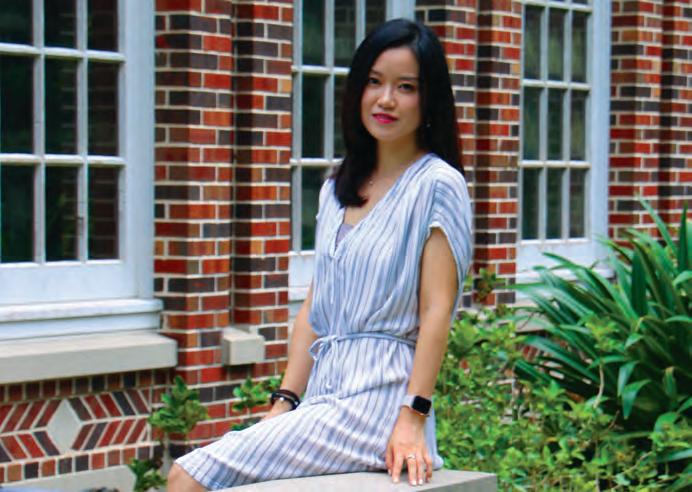
$2,725,238
TOTAL AWARDED
LARGEST INDIVIDUAL GRANTS
$700,000
$400,000
HIGHEST TOTAL FUNDING BY DEPARTMENT
$1,289,325
HIGHEST NUMBER OF GRANTS BY DEPARTMENT

SHENNETTE GARRETT-SCOTT PAUL AND DEBRA GIBBONS PROFESSOR
I’ll admit it. I’ve never been much of a science girl. My middle-school science fair project was simple: one seed in the sunlight, the other in a dark cabinet. The surprise? The sun-kissed seed never sprouted. Not a leaf. I walked away with a compass I didn’t know I needed: The best questions don’t always stay in their lane. But that spirit of curiosity, unbound by discipline, guides my approach to my scholarship and teaching and to the liberal arts more generally: not choosing between skills or knowledge, but holding both at once.
The either/or trap in the liberal arts debate — between “content” and “aptitude” — flattens not only the education students receive but also the lives they bring into the classroom. Let me explain what I mean through a course I’m teaching this fall on the history of Black women and power. First, I should state up front: The course doesn’t choose sides. Instead, it engages with a bold proposition: Read the
lives of those who risked everything to imagine new worlds. Built around life writing — memoir, autobiography, and biography — the course moves between content and aptitude by helping students develop nuanced arguments, write with clarity and conviction, and recognize systems of power alongside possibilities for liberation.
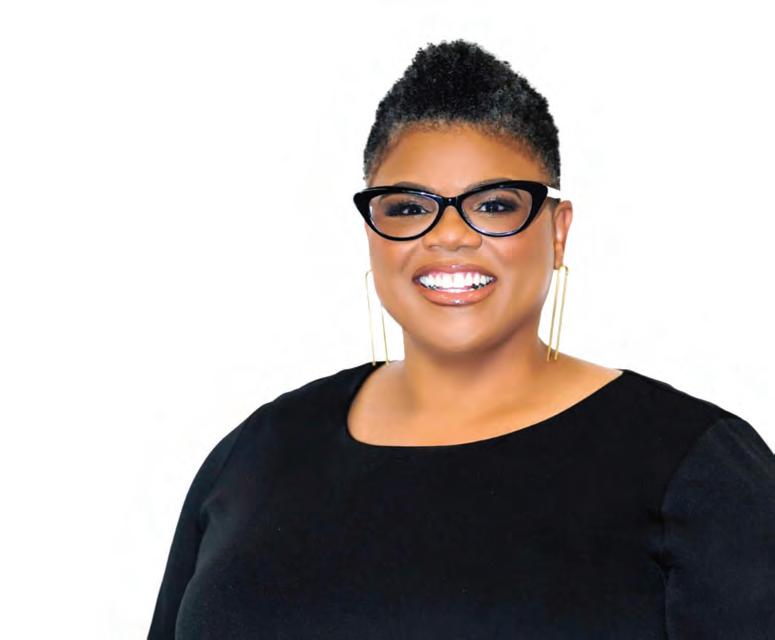
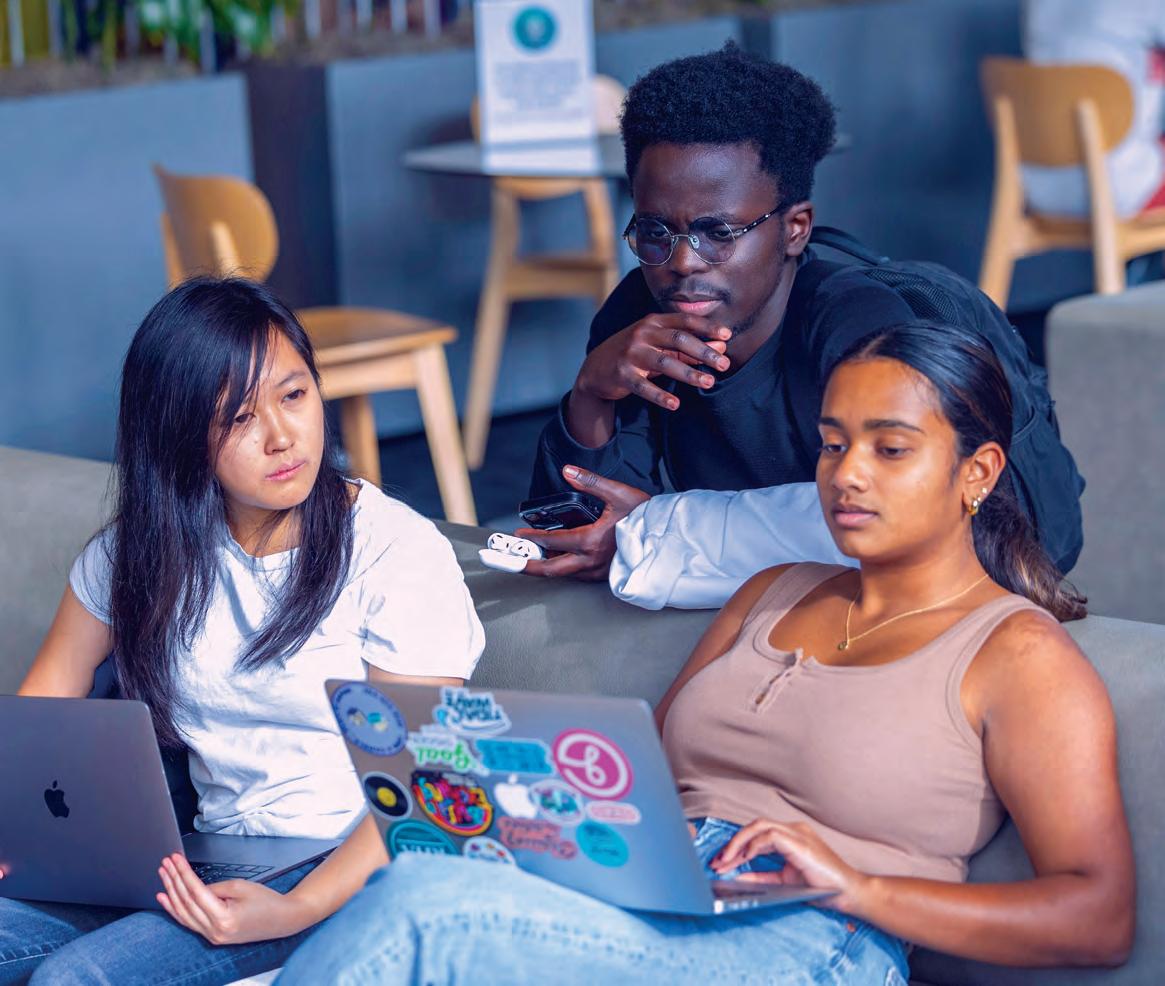
This isn’t just a history course. It’s a training ground for critical thinking and ethical leadership that puts human complexity at the center of learning. From Ida B. Wells-Barnett, the journalist and anti-lynching crusader who helped lay the foundations for both the modern civil rights and women’s movements; to Ericka Huggins, the queer human rights activist and former Black Panther political prisoner who nurtured a radical politics that fused collective justice with personal wholeness; to Tina Beyoncé Knowles, the beauty artist and designer who helped shape global cultural icons and who models Black motherhood as a form of world-making, these life stories don’t offer a set of answers, but an invitation. They don’t just hand
students a map; they present a terrain that encourages students to ask harder questions and find their own compass.
Radical Black women’s life writing is not only “content” meant to inspire and uplift. It is a critical mode of inquiry. Take To Tell the Truth Freely, the recent biography of Wells-Barnett. We’ll read it not to admire her but to examine how truth-telling exposes state violence. In this and other works, we’ll trace how grassroots organizing linked the local and global and reshaped ideas about not only leadership but also what counts as political. These texts demand that students confront power and historical memory. They cultivate an aptitude for
transformative thinking through a sustained engagement with complex lives and ideas.
In other words, students don’t just read biography, but practice it. Through learning activities that include critical analysis and digital storytelling, students craft projects grounded in rigorous research and their own lived experiences. No prior tech skills required; just curiosity and a willingness to learn.
I encourage students to make both emotional and intellectual investments in their learning and offer creative flexibility to communicate ideas that matter to them — all hallmarks of a liberal arts education. Our work together practices historical thinking, humanist reasoning, and real-world inquiry to move beyond prompted answers, to ask deeper, more self-aware questions about ourselves and the world around us.
Students need room to confront their own uncertainties, personal biases, and privilege; space to wrestle with and grow into their work. The liberal arts offer the space to cultivate ways of thinking that expand beyond any single field. Courses like this one offer a model for learning to think in ways that are both disciplined and expansive.
In an age of instant answers and prompted thought, the students who flourish both personally and professionally are those who ask the un-Googleable questions, reach beyond algorithms for understanding, think with care and imagination, and tell stories that matter.
To be clear: Content matters. These biographies are rich with archival, historical, and theoretical knowledge. They’re global in scope, interdisciplinary in method. But skills like intellectual risk-taking don’t grow simply from being exposed to complex works. They’re built through context and reflection.
That plant I left in the sun for my science fair project never grew. But the one in the dark cabinet did, against all odds. Maybe the conditions we assume are ideal aren’t what help us grow. In an age of instant answers and prompted thought, the students who flourish both personally and professionally are those who ask the un-Googleable questions, reach beyond algorithms for understanding, think with care and imagination, and tell stories that matter. A class like mine won’t teach you what to think, but it’ll help you think ethically and historically.
Shennette Garrett-Scott is an associate professor in History and Africana Studies, and the Paul and Debra Gibbons Professor in the School of Liberal Arts. She is the author of the award-winning Banking on Freedom (Columbia, 2019) and the forthcoming Enterprise: How Black Capitalism Made America (W.W. Norton).
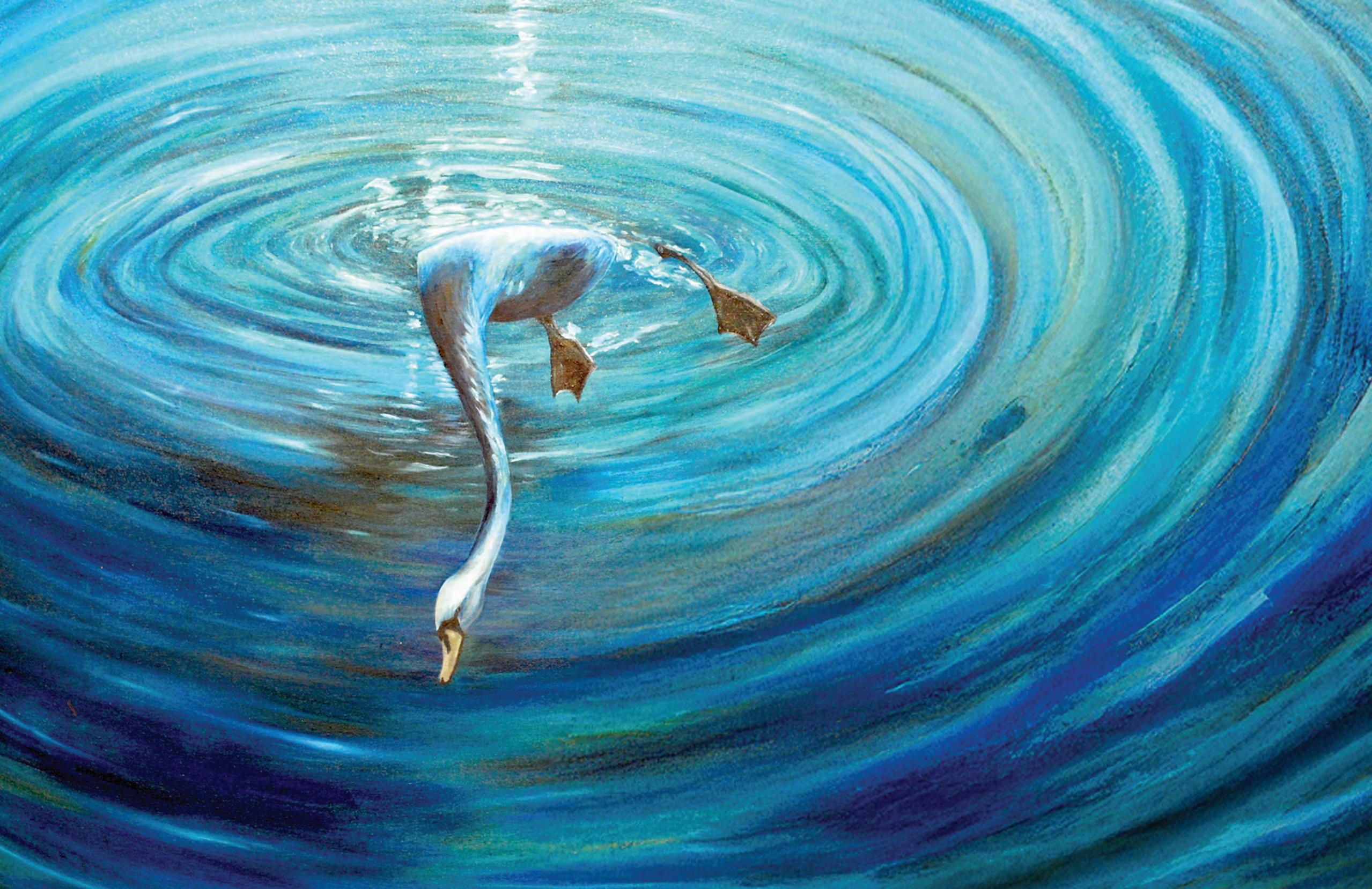
N. HARRIS SCHLIEDER FOUNDATION CHAIR IN PUBLIC EDUCATION, CHAIR AND PROFESSOR, ECONOMICS
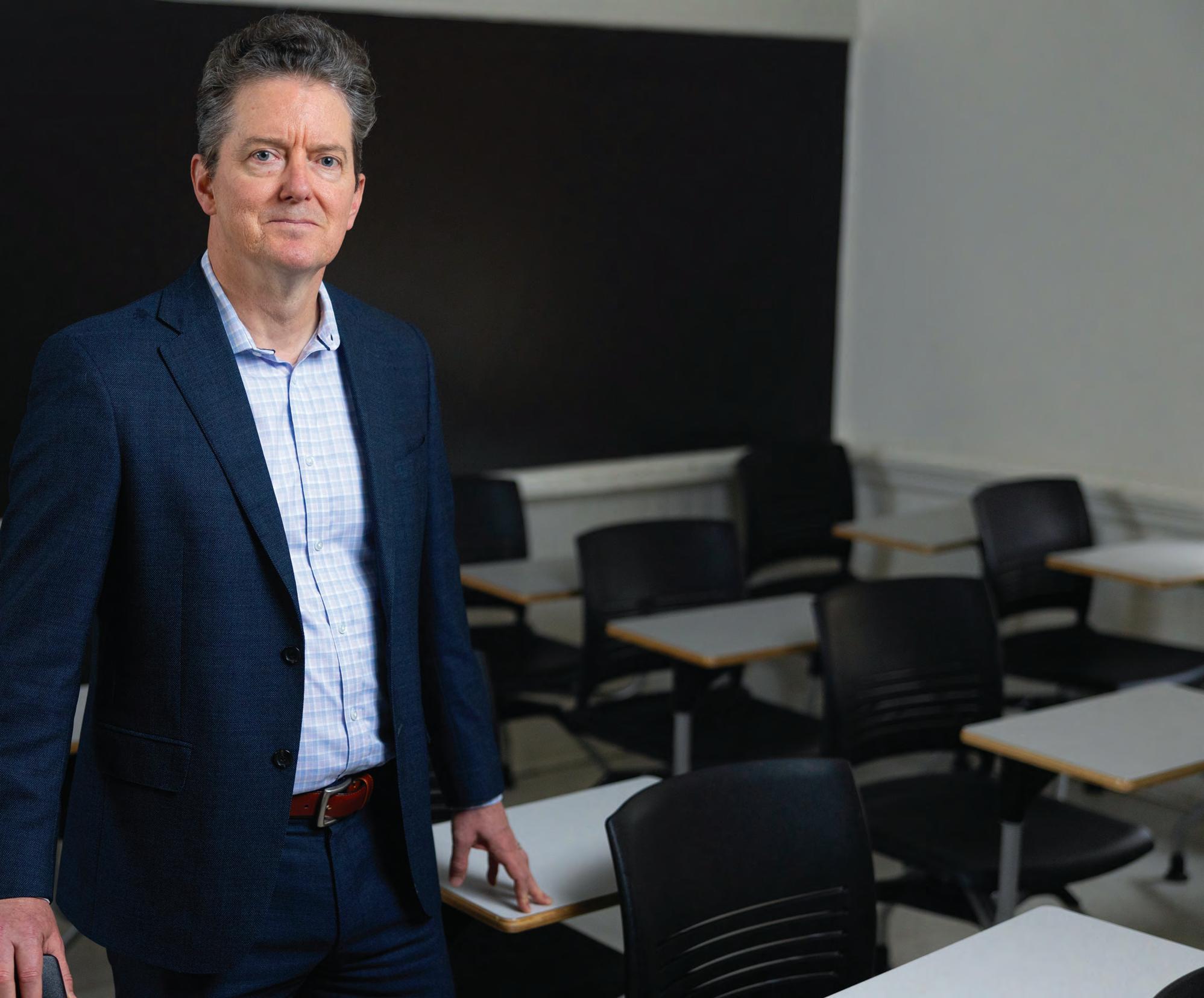
HOW THE LIBERAL ARTS HELP US UNDERSTAND AND ADDRESS THE STATE OF THE NATION HOW THE LIBERAL ARTS HELP US UNDERSTAND AND ADDRESS THE STATE OF THE NATION

A few years ago, I started to get worried about where we are headed as a country. Misinformation, distrust, anger, and polarization were — and remain — pervasive. I wanted to do something. So, I started to ask, how are we really doing? Is the nation’s bad mood really justified? If so, how and why?
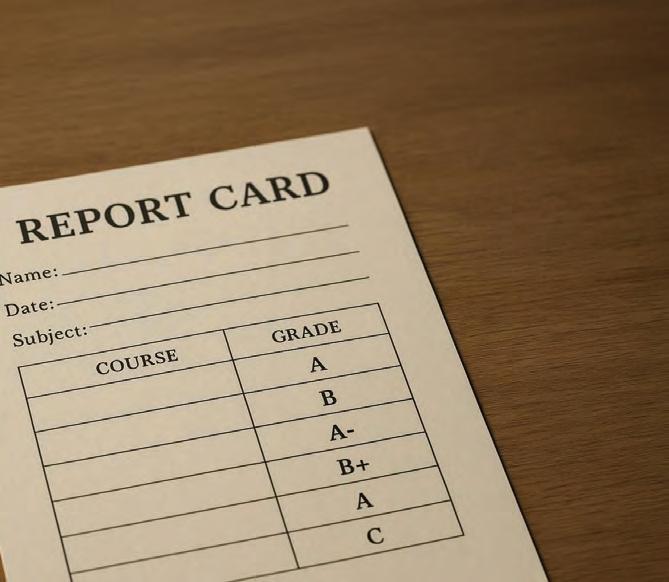
JAMES
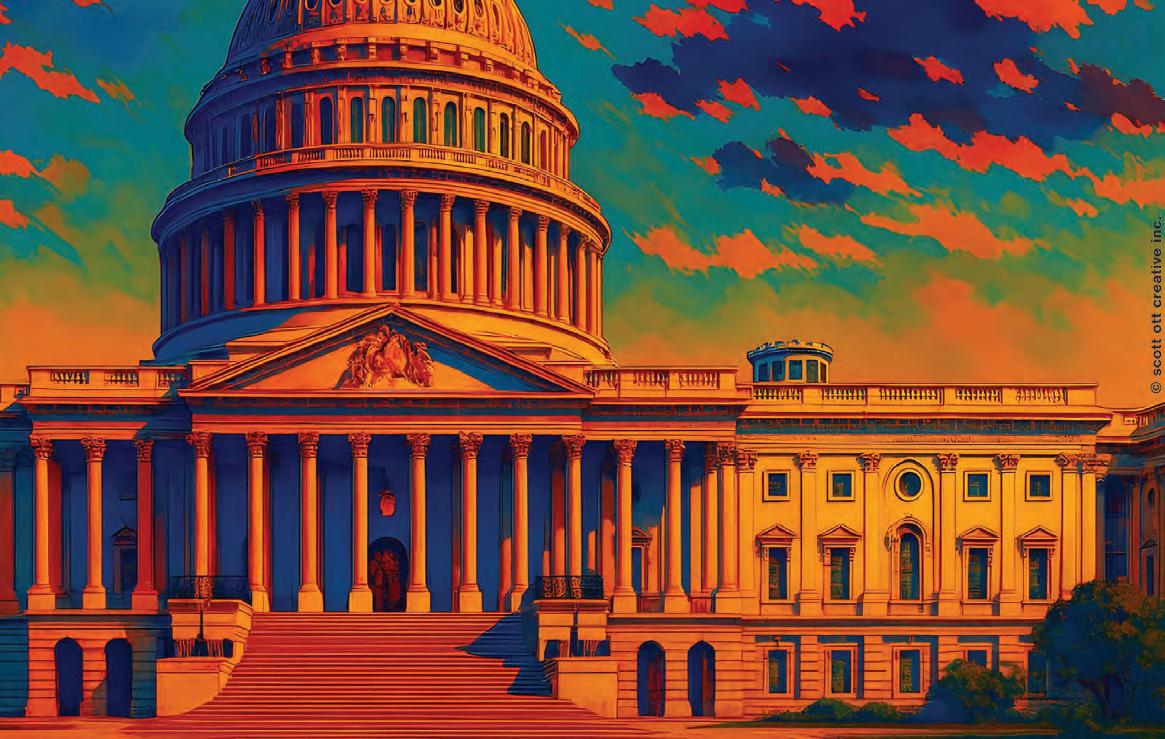
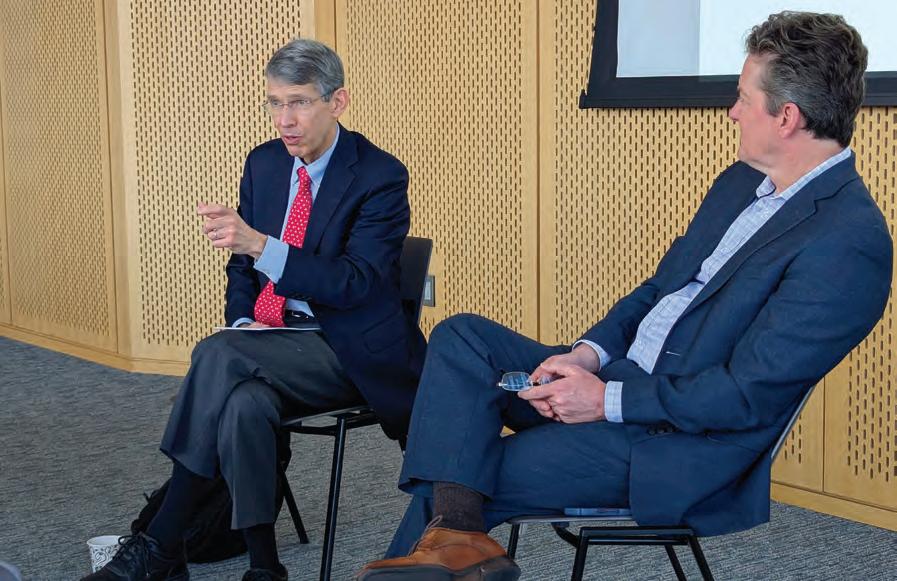
To answer these questions, I asked some of the nation’s leading scholars, drawn from a wide variety of disciplines and political orientations, to help scour the data for the best measures. Funded by Tulane’s School of Liberal Arts and the Murphy Institute, our group includes scholars in Economics, History, Medicine, Political Science, Psychology, and Sociology, and appointees or advisors to the last five presidential administrations, including Biden and Trump. We also polled a representative sample of the American people.
We first had to agree what measures were important enough to study. In the beginning, some in our group thought we would not agree on much, but they were surprised. We ended up with supermajority support (75 percent or more) for 37 measures across 15 topics. The public also had supermajority support for about half of those measures and more than 60 percent for most of the rest.
From this remarkable level of agreement, we created a progress report called the State of the Nation Project. It is like the report cards we give Tulane students, but here we consider everything from the economy and environment to life satisfaction and mental health.
So, what is the state of the union? The results are surprising in some ways. Perhaps that’s why the report received national attention when it came out last spring.
First, the good news. The economy is strong and poised for success. If you listen to the media these days, this might surprise you. But the United States has a long history and culture of innovation, relatively free and open markets, and a strong and growing workforce.
Our workers are also skilled. Large numbers of young people still go to Tulane and other colleges. Many others are gaining valuable work experi-
70%
... the percentage of countries the US outperforms on CURRENT LIFE SATISFACTION.
66%
... the percentage of countries the US outperforms on TRUST IN POLICE.
inequality, poverty, suicide, and — a statistic that surprised me — in our belief in democracy. We might reflect on the paradox of the world’s oldest continuous democracy having one of the weakest collective beliefs in democracy.
There are of course many other elements to the State of the Nation findings, and I encourage you to check them out on our website (QR code below). But I want to reflect on how this research mirrors debates over the liberal arts themselves. How we should understand the sometimes contradictory findings I’ve indicated.
ence from their jobs. The test scores of our children — a marker of their longterm productivity — have been somewhat middling overall for decades. But, our international test score standing has been steady, even improving the last few years. We can and should do more to improve achievement, but this is not the crisis that we see in many other measures.
Another bit of good news is that more measures are improving than declining. For example, while we are still one of the most violent higher-income nations, violence has dropped by half since the early 1990s.
The bad news is that we are a nation of extremes. In contrast to our very strong economic performance, we are in the bottom half of higher-income countries in terms of citizenship and democracy, inequality, mental health, and trust (as well as violence, despite our recent improvement). We are also among the worst countries on greenhouse gas emissions, income
33%
... the percentage of countries the US outperforms on BELIEF IN DEMOCRACY.
98%
... the percentage of countries the US outperforms on ECONOMIC OUTPUT.
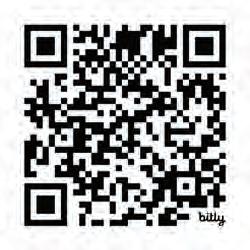
Some of these results may help us explain our current political environment. Whether you support President Trump or not, you might wonder, how did someone so critical of institutions get elected to lead the largest and most powerful institution of all? Part of the answer seems to be our collective disgruntlement with our lives and institutions — much of which preceded his election. The president’s aggression toward higher education, for example, would be no surprise given the crisis of public trust we observe. Even among those who oppose his actions have to take seriously the underlying concerns that enable them.
We could not have come up with a sensible notion of the state of the nation without the liberal arts to help us understand the full and complex range of the human experience, but the real potential of the liberal arts comes in the next steps. We now have to ask, why are we struggling so mightily? And what can we do about it? These questions will take all the liberal arts has to muster — curiosity about the world around us, critical thinking, and even advanced statistical analysis — to take on these heady questions. But answer them we must.
Douglas N. Harris is professor and chair of the Department of Economics and the Schlieder Foundation Chair in Public Education at Tulane University. He is board chair of the State of the Nation Project.
We could not have come up with a sensible notion of the state of the nation without the liberal arts to help us understand the full and complex range of the human experience.
In the ongoing “Great Liberal Arts Debate,” the most compelling arguments often come from those who have lived its impact. We caught up with four distinguished School of Liberal Arts alumni, each with their own diverse career path. They shared how their Tulane education — be it rooted in core curriculum or more interdisciplinary in nature — profoundly shaped their career paths and continues to inform their success in an ever-evolving world.
Gutierrez
English, Classical Studies, SLAM Minor, Simon & Schuster Sales Associate
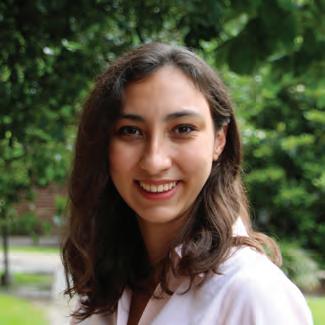
approach this topic from a very unique perspective. My solution to this whole debate is that it is a trick question, though, because they both matter, so it works out.
Every single person I work with was an English major. So, while it is a very direct connection, I don’t think the specific things I learned while getting my English degree directly correlate to my day-today role. I’m a salesperson — I’m not editing. I’m not trying to tell someone how to make their book sound better. But am using persuasive writing, critical thinking, and creative problem solving.
One of the favorite things I did at Tulane was take History of the Canon of American Literature, with Dr. Ed White. I learned why we included certain pieces in the canon. What caused changes? I would make the argument that what you’re reading and what you’re learning is almost irrelevant, as long as you’re developing certain skills. And I think the thing that’s most important to learn is general history. You know the classic line: if you don’t learn history, you’re doomed to repeat it. Which is, I think, very topical for our current political moment.
The aptitudes that learned are far more relevant to whatever I choose to do for the rest of my life. I’m 25. My career could go many different ways. Currently, it’s publishing, and I love it, but I could do so many other things. When you choose a major at 18, you can’t know for a fact that it’s going to translate to your career. Yes, it’s useful to have read the classics and have that common knowledge. But I’d also argue that in a world where people are reading less and less, getting people to read anything is more important than getting them to read something specific, because there’s inherent value in just about anything you read.
Political Science and International Relations, Litigation Trial Lawyer
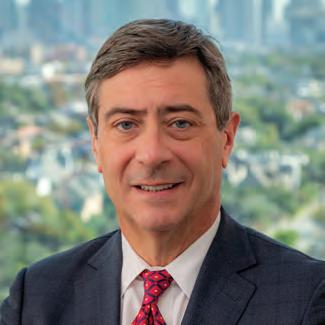
What do for a living requires a law degree. And so, from that standpoint, nothing that you know before the law degree is disqualifying in any way, but the attributes that are most important for being any kind of lawyer are the ability to read, write, and communicate clearly. It is also important to be able to tear an issue apart, dissect it, understand it, and analyze it.
When was in school, the engineering students and the business students had so many requirements that they had to take. They did not have the time to dabble in many of the courses within the liberal arts. Within the liberal arts, you have a lot more flexibility to take Psychology classes that may discipline your mind in a different way than the study of Economics.
When I’m looking for young talent to hire, I don’t care if they studied Biology, Economics, Engineering, or played the oboe in the Rice University Symphony. I care that they learned how to analyze all the possibilities and effectively communicate them in written and oral form.
The worst possible outcome is to study something you’re not particularly interested in. Your career is a fool’s errand. If you’re the right kind of student, you can learn important skill sets in any discipline.
Music Vocal Performance, Internal Medicine Doctor
As a doctor who also has a BFA in Musical Vocal Performance, I obviously needed to take a lot of science classes as an undergrad. But the truth of the matter is that all of the pre-med prerequisites are not of use to me in my current role. You learn to memorize and memorize efficiently, but the actual assimilation of information, restructuring, and making connections to health issues is entirely liberal arts thinking — not science. The actual creative thinking and problem solving, which I do every day as an internist, are not based on or reinforced by any Physics class or Calculus class that I took.
With science, something exists. There is a truth, and we have to find the truth and excavate it. With the arts, anything can be true, and we can create something new. think the critical thinking of other disciplines, like Philosophy or English, is where you learn to think beyond memorization and regurgitation.
When communicating with patients, often reference something from classical literature rather than using scientific vocabulary. I think people are more conversant in arts and disciplines versus having to learn the mathematical thinking of Chemistry or Physics. think I’m better at it because of my liberal arts background.
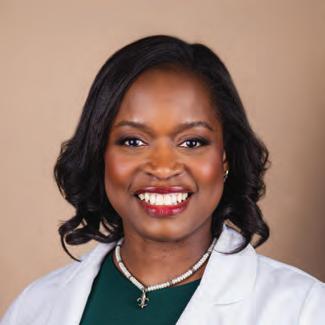
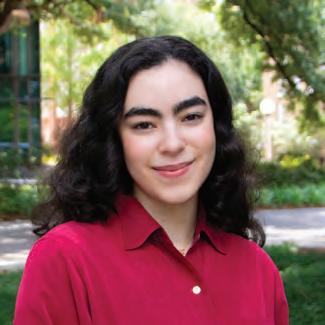
Philosophy and International Relations, Philosophy PhD Candidate
There is, in Philosophy, think, the advantage that you can study anything under that label. There’s philosophy of art, philosophy of love, and philosophy of action. I read political philosophy in my Political Science classes. Reading allows you to choose what to believe in, but you still have to go through the content. You might sometimes say, “I took away nothing from that,” but other times you might say, “This is the most valuable thing I’ve ever learned.”
I do think a lot of literature overlaps with philosophy. So, don’t think they’re self-exclusive in any way. And this is a popular opinion, but there is a certain curiosity that you need to have in order to appreciate literature. It’s a practice of empathy. It’s a practice of nurturing your mind, and being human is part of that. You might hate the book outlined on your class syllabus, but the practice of reading it is so much more valuable than avoiding it.
I think there are two sides to Philosophy being so popular. The main one is that it has become a means to an end. So, it’s not necessarily that Philosophy attracts people because they are in it for the love of knowledge. It’s more like, if I study Philosophy, then I can go to law school, and it looks good. Or if I study Philosophy, I can do X and Y, and I’ll be employable. But you sit in Philosophy classes, and there’s a lack of engagement. A lot of people do find it interesting, but you will find very few people who will continue with Philosophy after undergrad. That’s something that I’m grappling with, too, being in classes where people aren’t as engaged and are only there for a career. But is this what liberal arts is actually about? Just a career?
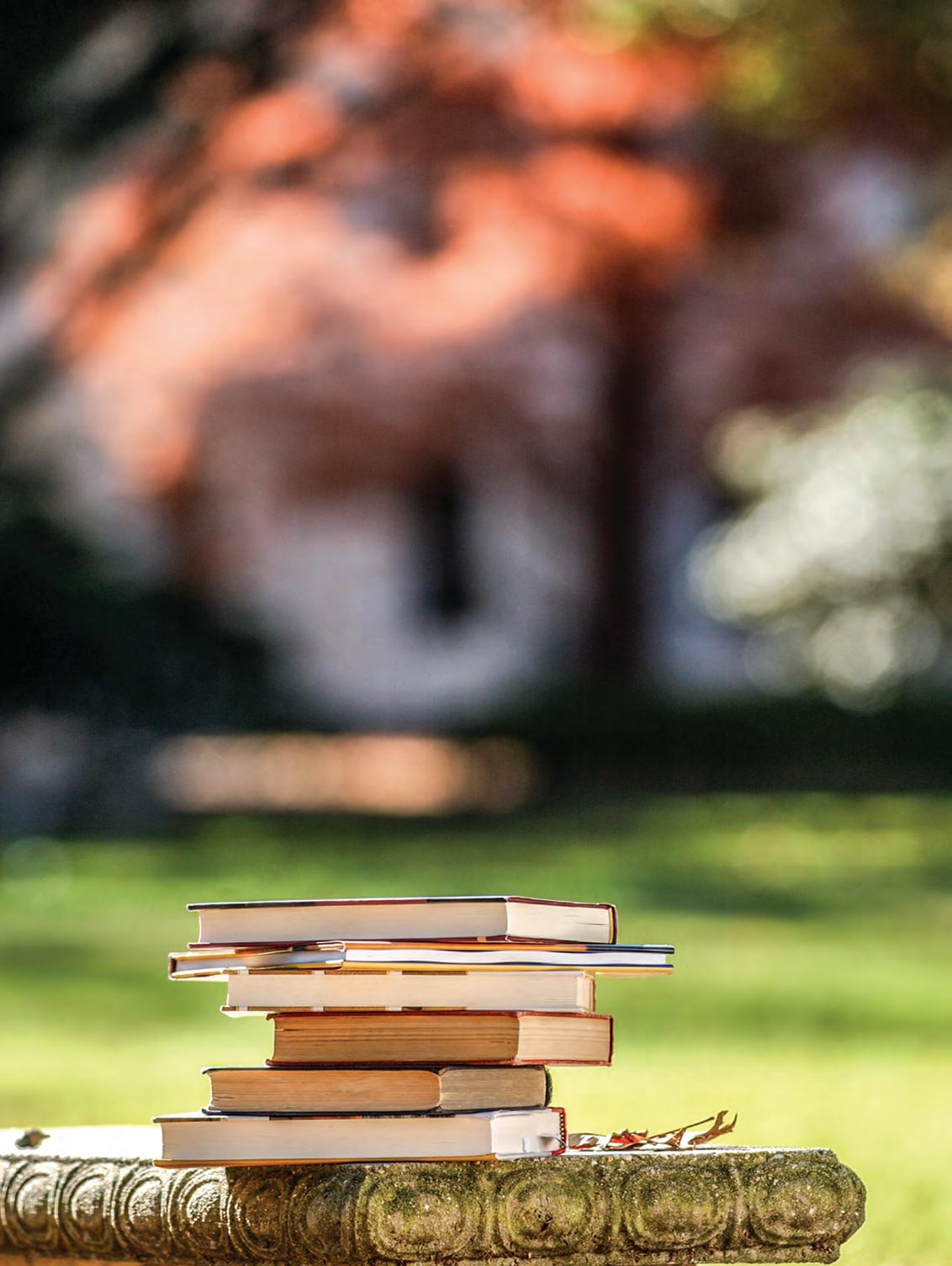
RONNA BURGER
CATHERINE & HENRY J. GAISMAN CHAIR AND PROFESSOR, PHILOSOPHY
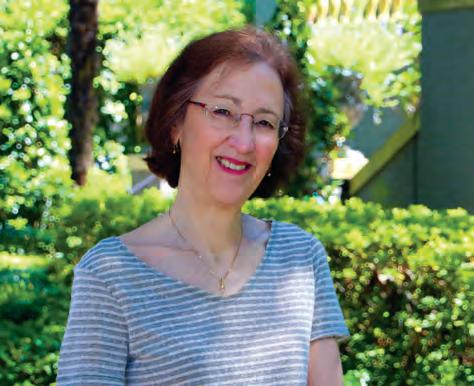
Thequestion of liberal arts education, if framed as a debate between “content” and “aptitude” taken as a mutually exclusive dichotomy, is seriously misleading. In fact, the most meaningful way to develop intellectual aptitude, I would argue, requires engagement with a particular content: the classic works that have inspired thinkers, writers, and artists over centuries, traditionally called “the great books.” Grappling with these demanding texts fosters skills in articulating, expressing, and assessing ideas. Entering into dialogue with their authors, we rise to a level we were not even aware of before. Teaching classes devoted to the study of those works over many decades, I have often heard students remark, “This is what I thought a college course would be like.”
The exciting endeavor of interpreting a great book does not come about by simply opening up its pages. A beginner needs guidance in learning what it means to read carefully and thoughtfully, what questions to raise, how to proceed
in a paradoxical spirit of moderation and courage. On the one hand, we must assume that these authors are wiser than we are and we have much to learn from them; on the other hand, we must boldly think for ourselves, asking what that wise author could have meant by a puzzling point, pondering how it might shed light on our own concerns. In returning to such a book a second time, or more, we discover new riches, in part by recognizing what we missed before. Since that is just as true for the one who provides this guidance, the teacher is always a student at the same time.
The classics are books that have shaped us and our study of them; a journey to understanding who and what we are. Our tradition is rooted in two sources, “Jerusalem and Athens” in shorthand, or the Bible and Greek philosophy, and the nature of the relation between them is a dynamic force in determining our identity. Whatever their dispute answers, an open-minded exploration of these two sources brings to light fundamental questions about issues that continue to
occupy us: humanity and divinity, reason and revelation, man and woman, nature and law, opinion and knowledge, individual and community, democracy and tyranny, justice, nobility and the good.
The “canon” of works in which such fundamental questions are addressed should not be approached as a repository of doctrines; on the contrary, one mark of a great book is the way it precludes dogmatism. This is exemplified by the philosopher Socrates, engaged in the activity of “examination of opinion.” Plato’s representation in his dialogues draws the reader into the inquiry, uncovering the partial character of the opinions expressed, and animating a pursuit of the truth. This is not just an intellectual exercise, but the core of a way of life.
Plato illustrates the challenges to education in his inventive and profound image of the cave, perhaps especially applicable in our technological epoch. Every society is an enclosed world, we citizens are chained in seats able to see only shadows on a wall in front of us, produced by artifacts carried along behind us, projected by the light of a fire. But we are not fated to imprisonment: Every cave has an opening to the light outside, and it is always possible to be turned around, to discover the cause of the images previously taken for reality, and ultimately to consider whether and how those constructions reflect what is true by nature. Plato offers a subtle hint of the role of the philosopher in this process: A figure inside the cave is busy asking a newly released prisoner about the passing artifacts, “What is it?” This is the question addressed in each Platonic dialogue: What is justice, or courage or moderation or knowledge, love or friendship or pleasure, among other matters of the greatest importance to us.
Pursuing such questions through our study of the classics — reading, thinking, and conversing — frees us from an “unexamined life,” unlocking the valuable potential of a liberal arts education, for which college years should be a preparation.
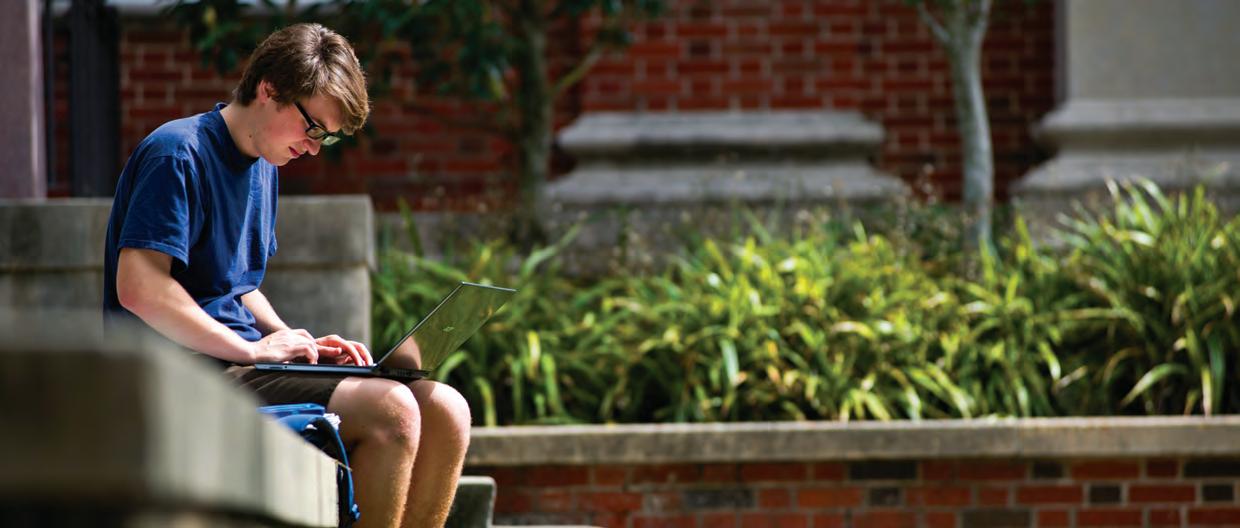
THOMAS ALBRECHT CHAIR AND PROFESSOR, ENGLISH
As many liberal arts students learn in their classes, a paradox is a proposition that runs contrary to received opinion and that careful investigation may nevertheless prove to be true. These days, the paradox I often put to my students is that three years after the release of ChatGPT, now is the ideal time to take courses in languages and Literature, History and Philosophy. I tell students that now, more than ever, is the perfect moment to declare a major in one of the liberal arts fields.
prepare students are increasingly being outsourced to AI. Human coding skills are being replaced by “vibecoding” programs, and software engineering and development tasks are more and more being performed by AI-powered chatbots. The revolution devours its own children, Jacques Mallet du Pan famously remarked about France in 1793, offering just the kind of critical insight that a liberal arts student might have.
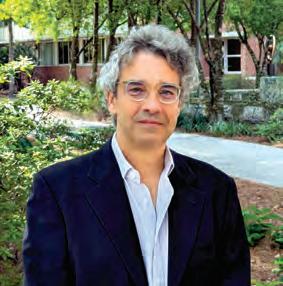
derived from a database, no matter how vast. Another example is three-dimensionality of thought, as opposed to the characteristic flatness of what AI generates. A third example is empathy. Some people regard feelings as a liability, especially for men. But in the age of AI, emotional understanding is a rare and increasingly precious asset.
Ronna Burger is professor of Philosophy and holds the Catherine & Henry J. Gaisman Chair in Judeo-Christian Studies. She has taught at Tulane since 1980.
Today’s conventional wisdom of course tells students that from an employment point of view, now is the time to major in Computer Science and applied STEM fields. But by an ironic turn of fate, the technical jobs for which those majors
The paradoxical value of studying the liberal arts is that they teach us things that AI can’t do. They do not simply impart information or teach technical skills. The true value of the humanities lies in how they galvanize our humanity. One example is creativity. Truly original creative expression, in whatever form, cannot be
Thomas Albrecht is a professor of English and chair of the English Department. Professor Albrecht’s research areas include 19th century British and European literature, in particular, narrative fiction and the novel; literary realism; British women writers; and British and European aestheticism and literary decadence.
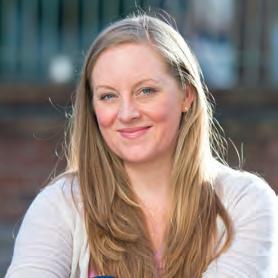
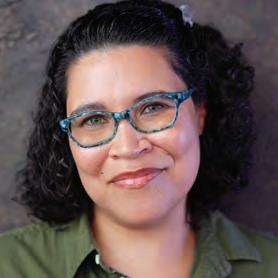
Lisa Wade
Associate Professor, Sociology and Gender & Sexuality Studies
Gaining the knowledge needed to make decisions for themselves is a key aspect of a student’s college experience. This fall, Tulane undergraduates enrolled in “Sex in College,” a new Sociology course from Professor Lisa Wade, author of American Hookup, the definitive book on collegiate hookup culture. The course introduces participants to the history of youth sexual cultures, the origins of hookup culture, and the ins and outs of a cultural phenomena that has taken over campuses — and come to dominate campus sex life — and its complicated landscape on college campuses.
“Sex in College” explores the pleasures and perils, offering insights into the nature of sexual liberation. Throughout the semester, students are reading academic literature and research on the unique nature of Tulane’s hookup culture. They are being asked to imagine what youth sexual culture might replace hookup culture and whether it’s already here. They will leave the class with a rich understanding of hookup culture and the tools to navigate it — whether they hook up or not.
Sherrice Mojgani Associate Professor, Theatre & Dance
In the theatrical lighting design discipline, the ability to take an idea from the imagination and bring it to life on stage is entirely dependent on the designer’s ability to communicate clearly through technical drawings, and on their knowledge of lighting control styles and technological limitations. These skills are highly technical, deeply ephemeral, and dependent on communication with skilled technicians.
This fall in the Theatre & Dance course “Computer Technology For Lighting,” students are exploring theory and build skills necessary to communicate designs for theatrical lighting systems that support storytelling and creative vision. While students in the course are learning “hard skills,” they are also demonstrating that they can handle challenging tasks by learning technically complex things and systems that are changing and advancing.
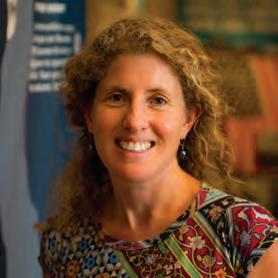
Jana Lipman Professor, History
Almost all of our incoming students were born in the 21st century — which means the 21st century is now history! The History course “21st Century US History” asks students to study the events that would have formed the backdrop of their childhoods: 9/11, the US wars in the Middle East, Hurricane Katrina, and the 2008 financial crisis. We take a deep dive into primary sources — students do short research papers using historical newspapers — and we talk about the rise of digital sources and social media.
The class asks “big questions” that still matter today: What have been the consequences of the “War on Terror?” How do students evaluate the fallout of the 2008 financial crisis in contemporary politics? What roles did race, class, and gender play in 21st-century electoral politics? And for those of us in New Orleans, what are the legacies of Hurricane Katrina on its 20th anniversary?
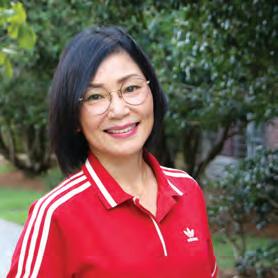
Saeko
Yatsuka-Jensen Professor of Practice, Asian Studies
———
Beginning Japanese courses incorporate vital Japanese traditions and values, such as the therapeutic art of penmanship and the importance of being humble, into lessons on the fundamentals of the language.
Values are intrinsic to the language itself. Japanese is a language of respect — which is demonstrated by reversing the word order usually found in English or Romance languages. For example, in Japanese, one says “I scary movies like not” instead of “I don’t like scary movies,” conveying the speaker’s idea upon the completion of the sentence, and requiring students to listen to each other without interruption or hasty judgement. In addition, the personal pronoun “I” in the sentence is not considered the subject and is often dropped, which is another reflection of the Japanese cultural value of group harmony. A Japanese class teaches students that mutual respect realizes equity and a sense of belonging, readying them for study abroad opportunities or careers where cultural competence is immensely important.
51 MAJOR PROGRAMS
38 MINOR PROGRAMS
34 GRADUATE PROGRAMS
23 MA programs
11 PhD programs TOP MINORS
713 SLAM 581 Spanish
FASTEST GROWING MAJORS POLITICAL ECONOMY COGNITIVE STUDIES
CORE ATTRIBUTES
SLA CONTRIBUTES TO 65% of Core Attributes including:
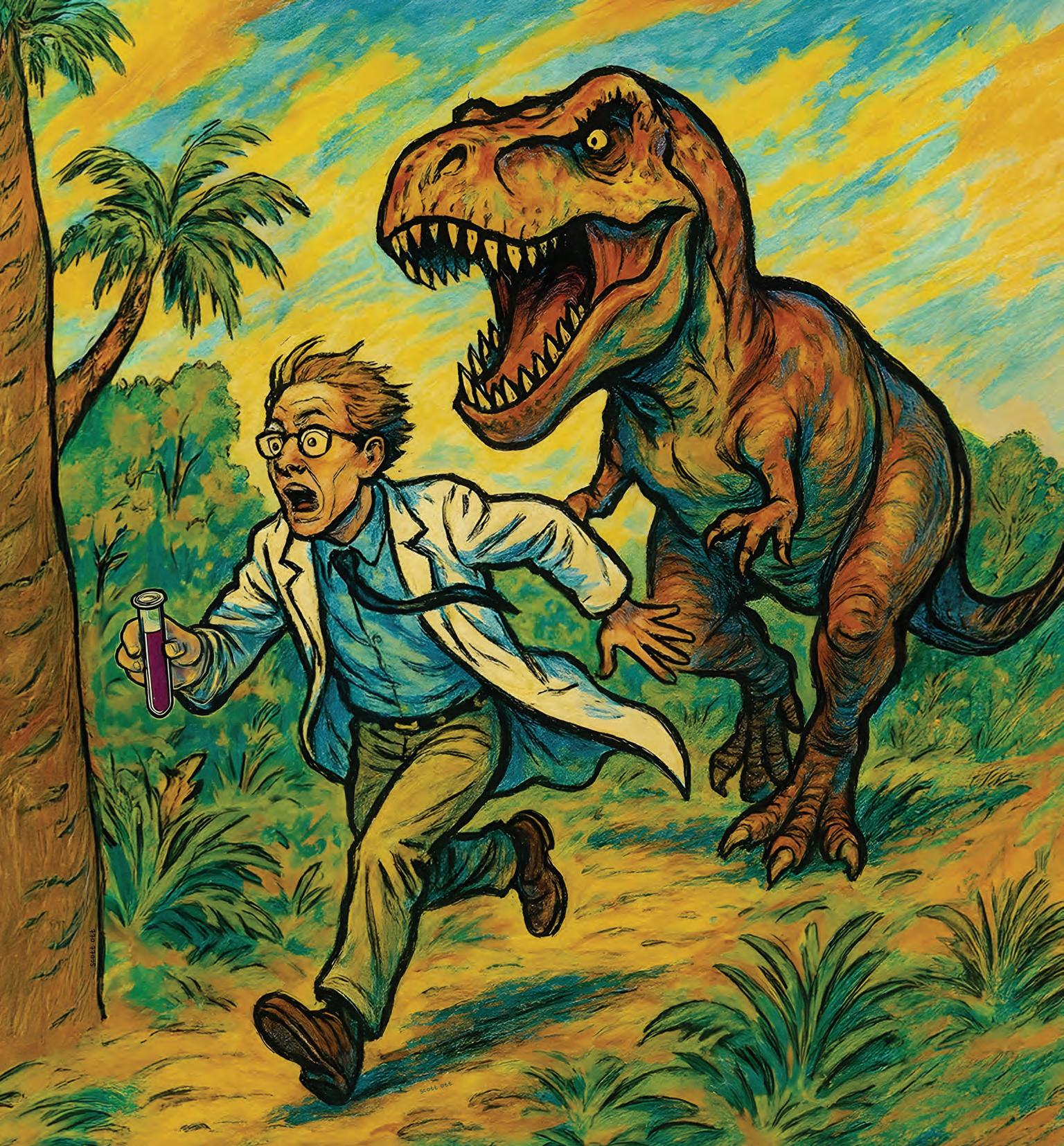
SCIENCE CAN TEACH YOU HOW TO CLONE A DINOSAUR. HUMANITIES CAN TELL YOU WHY THIS MIGHT BE A BAD IDEA.
The liberal arts, and especially the humanities, are important for everyone. Although the specific disciplines included under the umbrella of liberal arts have evolved over time, they have been a significant part of higher education for more than a millennium. The term “liberal arts” derives from the Latin for “free” (liber/liberalis) and “skill/practice” (ars/artes) because these studies were essential in preparing free citizens for life as leaders in their communities. This is just as true now as it ever was — perhaps even more so. We live in a world where movement around the globe and interaction with international communities is easier and more frequent than in the past. In this world, the liberal arts offer ways of engaging with other cultures through its variety of disciplines. In addition, the liberal arts prepare one to work through “unstructured problems” and to understand specific issues within a broader context — the “big picture” view.
The expanded worldview has many advantages. In recent years, the benefit of higher education itself has been questioned, especially the value of the liberal arts. The best argument in favor of a liberal arts education is that it supports and encourages creativity.
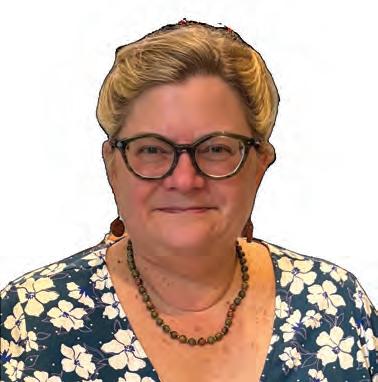
SUSANN LUSNIA ASSOCIATE PROFESSOR, CLASSICAL STUDIES
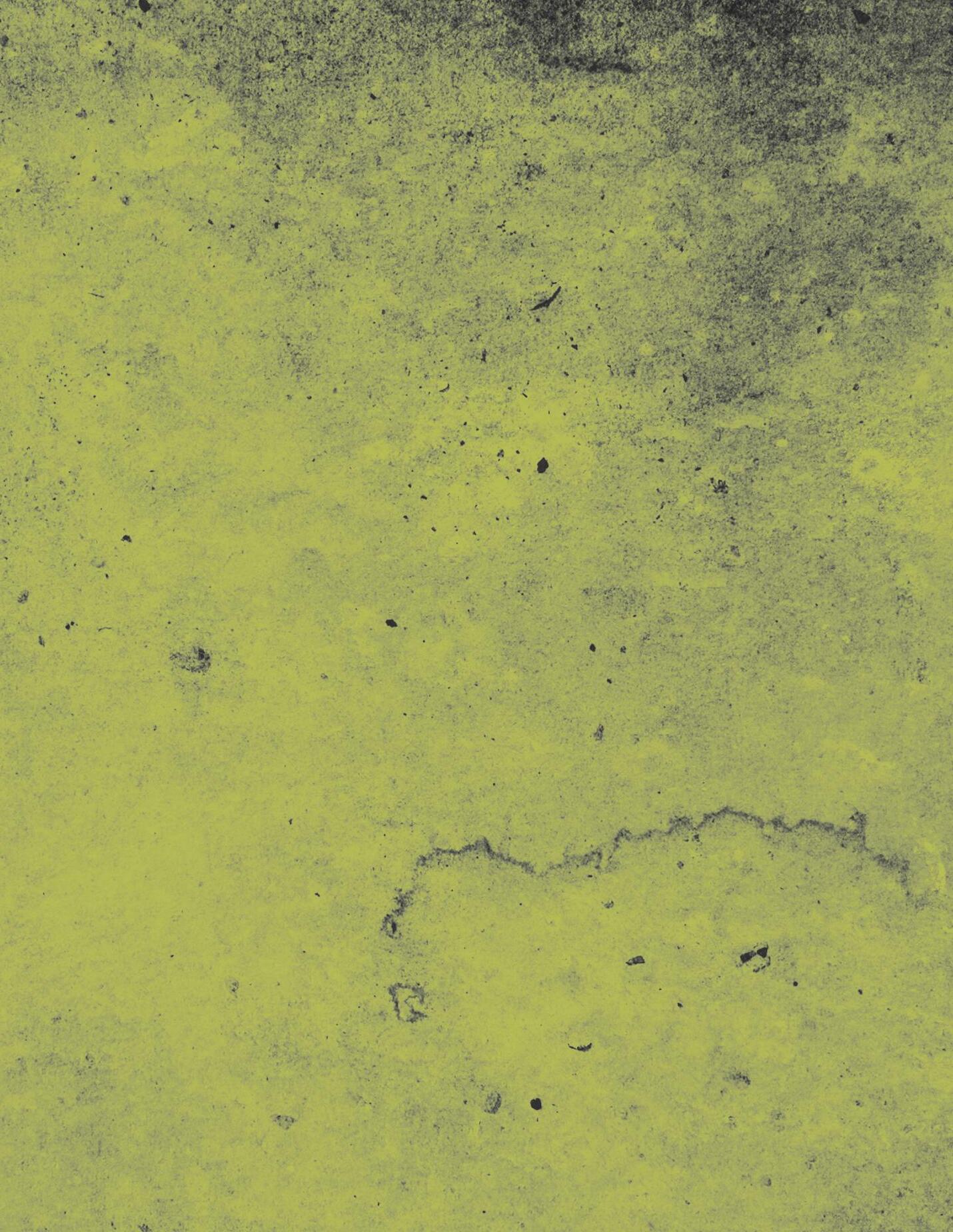
All the liberal arts disciplines encourage students to think about complex issues for which there are often no specific rules or frameworks. The outcome is that the student learns how to develop strategies for dealing with the “unstructured problems” of the world. Most of the challenges that we confront in our lives are not neatly packaged with rules and instructions on how to fix them. In the liberal arts, you prepare yourself to think deeply and in a more constructive way. Moreover, learning how to approach the unstructured research problems presented in the liberal arts curriculum outfits you to become a lifelong learner, someone capable of adapting to new situations and problems. In other words, you are learning how to learn, not just mastering an array of facts.
A frequent concern expressed in higher education revolves around preparing students for the jobs of the future. How will we know what those are? The world as we know it is changing rapidly, and it may not be possible to predict what will be needed 10 or 20 years from now. Progress seems so rapid that we are outpacing our ability to consider its implications. A meme from a few years ago (“Science can teach you how to clone a dinosaur. Humanities can tell you why this might be a bad idea”) suggested that the liberal arts, particularly the human ities, could — indeed should — have a role in dealing with new technology. The key to preparing for the unknown is developing a flexible mind set grounded in reason, ethics, and creativity. If you immerse yourself in the liberal arts, you are equipping yourself with skills that last a lifetime and prepare you for nearly anything.
YOU TO DEAL WITH THE KNOWN. EDUCATION PREPARES YOU TO TACKLE THE UNKNOWN.
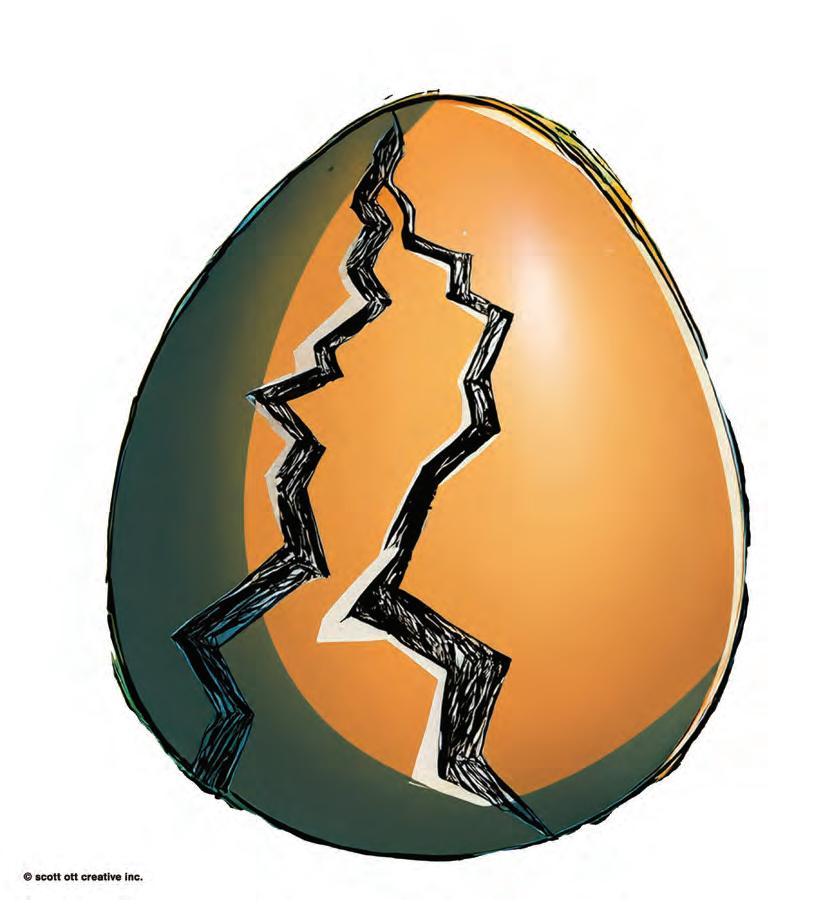
(ADAPTED FROM THOMAS RICKS, THE GENERALS, 2012)
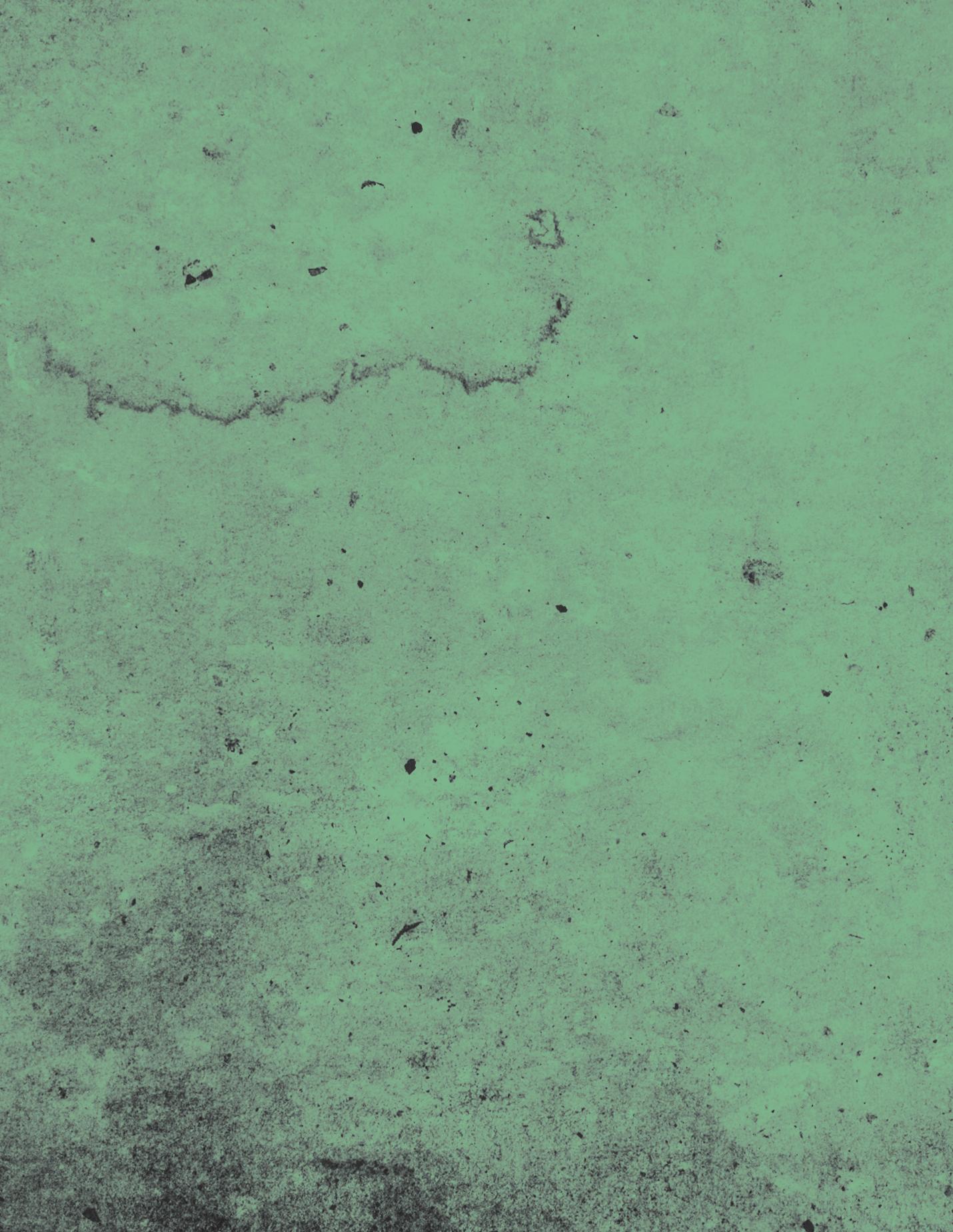
TWO FACULTY MEMBERS ON WHY THEIR DISCIPLINE HOLDS THE KEYS TO LIFE BEYOND THE CLASSROOM.
“In choosing a major or discipline, I frequently encourage students to follow their passions and proclivities. But how does each department, in its embracing of differing approaches and methodologies for understanding the world, society, and human meaning making, set up our students for success, however we define it?” - Dean Brian T. Edwards
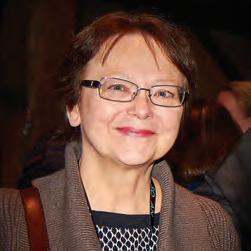
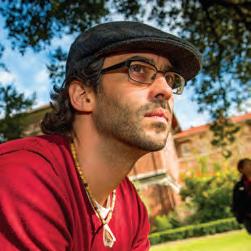
BJ: Music studies train the brain to process intricate systems, recognize subtle patterns, uncover nuance, and synthesize creativity with logic. In Harmony, independent parts come together to form a unique new entity, with each voice retaining its individuality while contributing to a richer whole. Ear Training hones deep listening and discernment — skills needed for thoughtful leadership, negotiation, and innovation. Music Composition transforms abstract sound into structure, shaping intangible ideas into purposeful design — a transferable strength in fields from Architecture to AI.
SO: Human behavior involves continuously creating order from disorder so we can plan and act with confidence: Those who can do so are most equipped to lead in their personal lives, families, and careers. This is the realm of Sociology, the study of people doing things together. As both an art and science, Sociology is a powerful discipline for assessing, understanding, and anticipating human behavior.
BJ: Participation in music ensembles reinforces a profound balance between individual artistry and collective cohesion. Musicians must simultaneously express originality, technical skill, and interpretative virtuosity while adapting their performance to the composer’s vision and the conductor’s leadership. This duality between independence and cooperation is directly applicable to professional environments that demand teamwork and innovation. Chamber musicians further refine their adaptability, learning to anticipate shifts in tempo, dynamics, or tension through nonverbal communication and deep listening — a skill crucial in fields ranging from negotiation to leadership.
SO: This future will need individuals who can plan, decide, create, negotiate, and navigate among a vast array of people with different perspectives, incentives, frameworks, and pressures. Those who develop insights and expertise harnessed with a Sociology degree and the liberal arts will be most prepared for this global environment.
BJ: Beyond its role as an art form, music serves as a profound catalyst for interdisciplinary exploration and discovery. Many students channel their training into groundbreaking interdisciplinary projects, merging sound with neuroscience, coding, or robotics. Others explore music’s therapeutic potential where research increasingly demonstrates its power to enhance brain plasticity, improve memory, and stimulate neural pathways linked to healing and resilience.
SO: Sociologists are especially equipped to thrive in a future of artificial intelligence, cybersecurity, political and environmental challenges, and the rapid flow of information and people across the globe. Consider the global response to disease. Sociologists approach this problem holistically, integrating the many cultural and structural factors that impede response and containment: the spread of truthful information, rumor and their resonance (and dissonance) with different populations, structural hurdles to distribute and access supplies, practical implementation of containment strategies that do not conflict with cultural practices and beliefs, incentives and norms that do not contradict messaging and solutions. This is sociological thinking and planning in practice.
BJ: In a world of relentless change and increasing complexity, music education stands as a powerful antidote to narrow specialization and rigid thinking. Often misunderstood as “impractical,” Music Studies cultivate the very skills most essential for thriving in unpredictable environments: versatility, critical thinking, and ability to navigate ambiguity.
SO: Sociologists’ skills are valued in government, business, healthcare, urban planning, international relations, and beyond. They enjoy a variety of rewarding career options and can pivot later in life, should they want or need to. Flexible enough to adapt to the changing conditions around them, but with a core set of skills that ground how they approach, move, and grow in the world, Sociology is the discipline of the 21st century.
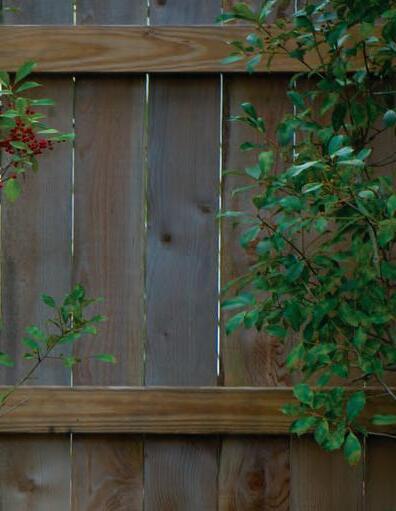
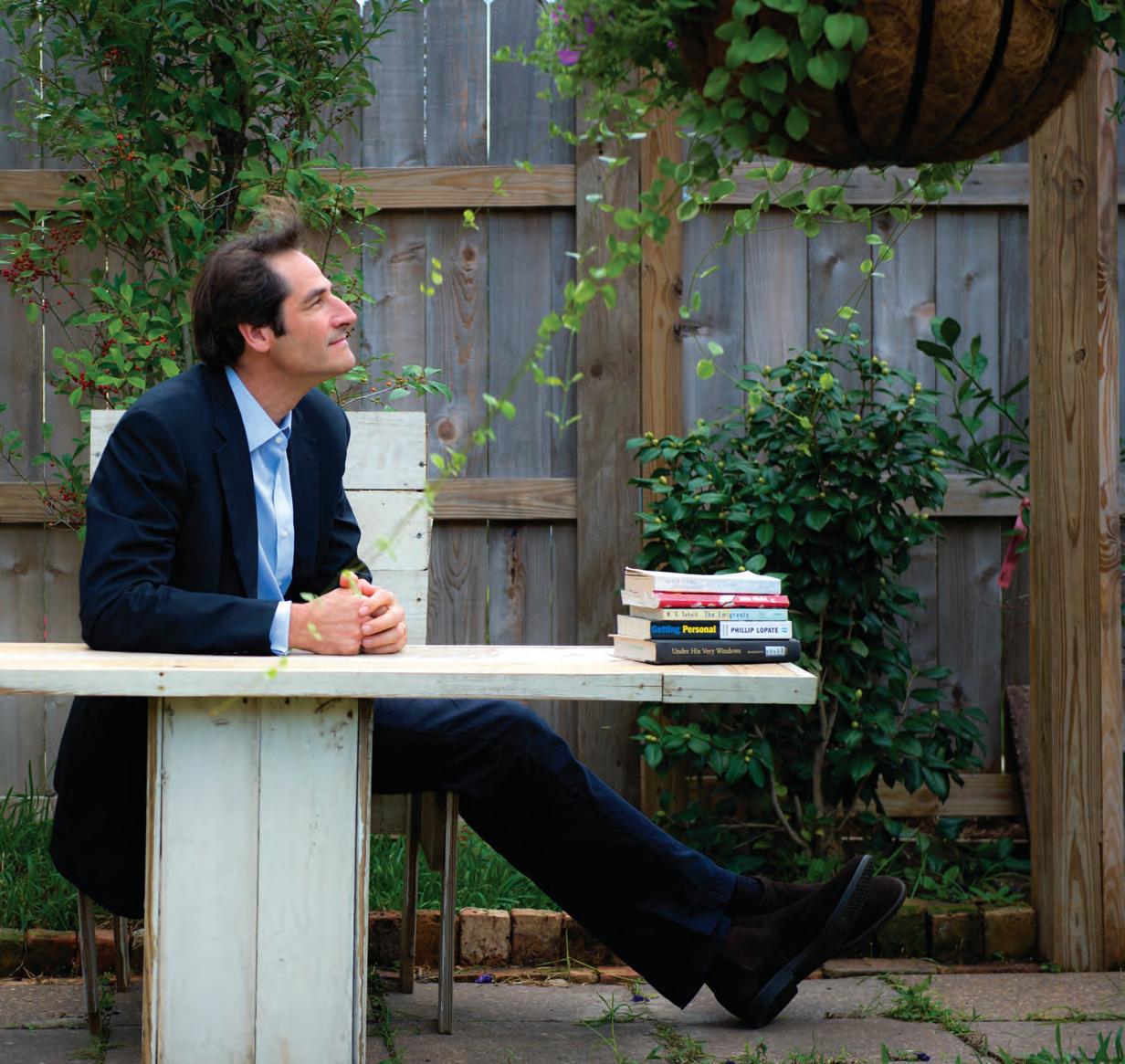
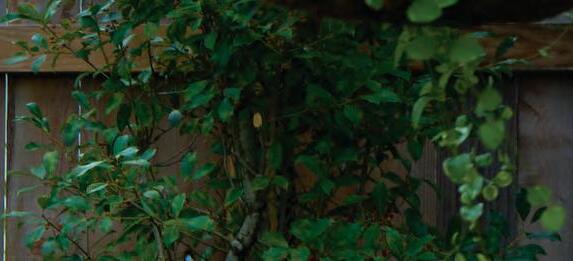
THOMAS BELLER DIRECTOR OF CREATIVE WRITING & PROFESSOR, ENGLISH
Recently, while doing research on my father’s mysterious immigration from Vienna in 1938, I came across an article about Professor Walter Sokel that appeared in a 1961 issue of the Columbia University Spectator I first read the article a decade ago, but now some lines that had previously passed unnoticed jumped off the page in ways that seemed to speak directly to contemporary issues facing university education in 2025.
Sokel had been friends with my father and his older brother, Kuno, in Vienna when they were kids living in the 2nd district — the once Jewish neighborhood that sits in the shadow of the Prater and its famous Ferris wheel. Sokel’s family and my father’s family both escaped from Vienna in the immediate aftermath of the Anschluss in March 1938, eventually landing in America. Once their lives were reconfigured here, they stayed in touch. My father became a psychoanalyst. Sokel became a profes-
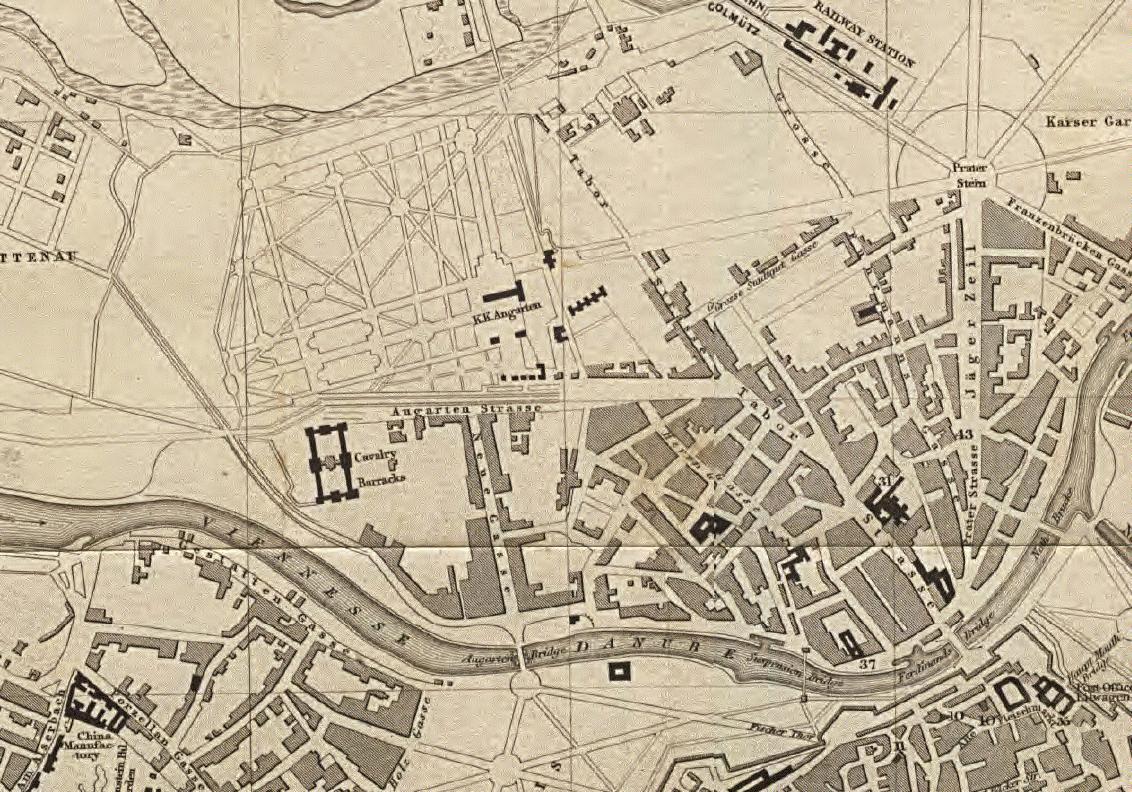
sor of German literature who taught at Stanford, Columbia, and the University of Virginia.
The Spectator article introduces Sokel as a product of the European educational system — the gymnasium — which, he explains, “stresses factual knowledge in a few subjects over discussion. Mathematics and the classical languages are taught by rote from the earliest grades, and become quite mechanical by the end of the studies at the gymnasium.” This was in juxtaposition with the American system, which, he said, “stresses discussion, with the factual knowledge of secondary importance.”
He was referring, specifically, to the humanities courses at Columbia, which were “the last stronghold of the discussion class over the lecture class. In these classes, the instructor not only teaches, he learns.”
Sokel was retired and well into his 90s by the time we began to correspond by letter. I sent him my first book of stories and he responded that the characters reminded him of people he had once known — “complicated people, ambivalent, inward looking and quasi-intellectual, with an oblique relationship to the world” — and said he felt amazed “that the city had sustained that kind of person.”
I had one long, gratifying conversation with him on the phone. To my great irritation, I failed to record it. But I took contemporaneous notes. The most striking detail was his use of the word “emancipation” to describe the effect of arriving in America on him, my father, and uncle, an effect that was much less pronounced for their parents. I did not, at the time, think to ask if this freedom was from the strictures of the gymnasium, or from Jewish life in Vienna, even before the Nazis, or if it was something more fundamental
The gift of a humanities education
is that you might be lucky enough to find work that you so want to keep doing.
to their generation, who had been freed of the mentality of the Shtetl from which their parents had fled during and after World War I. Even without the specific context, “emancipation” rang out. There are many kinds of freedom — political, financial, and that elusive inner freedom to see oneself, to be in dialogue with oneself, to change.
A quote in the Spectator article that suddenly seemed conspicuous was in connection with Sokel’s opinion that the ideal form of education was a synthesis of the European and American models. “However, the recent advent of IBM machines makes factual knowledge necessary. Professor Sokel hopes that America will not go overboard in its quest for facts.”
Our current preoccupations with automation in the age of AI has a strong parallel to the early computer age, a more primitive form of automation that nevertheless
sparked similar anxieties about machines replacing acts of the human, making life more streamlined and efficient. A form of
on existential dimensions with the advent of AI in which the player piano no longer just replaces the human hand that plays the music but also the mind that makes it.
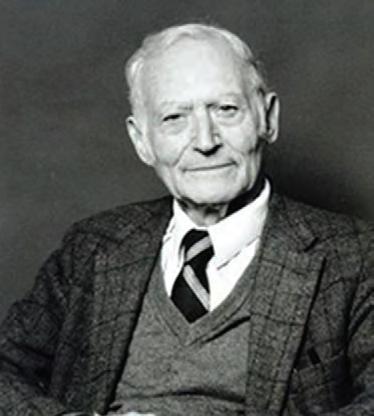
assisted living that deprives us of something essential to our experience of life. A metaphor and reality that have now taken
is their education. For all the nonsense that accompanies discussions of a college education — how much it costs, how its value can be assessed — what is indisputable is that it’s an important time in life. This is when these young people have time to read short stories and essays and write things and lie around with thoughts halfformed and then stay up late, or wake up early, putting those thoughts into words and on the page. It’s a way to test their limits, and find their way towards interests, creative and intellectual, that will last long after the class is over
In my conversation with Sokel, which took place in the spring of 2011, he remarked that he was working on a paper about time in Nietzche, Einstein, and Kafka, to be pre-
sented in Vienna in the fall, and added that he had had an acute anxiety attack about it.
“It came about because realized I was close to the, you know, the finish line, the deadline,” he said. “I didn’t have much time left, and I wasn’t nearly done.”
At first, I thought he was talking about the sudden realization that he was going to die soon, and that there was so much more he wanted to accomplish. But this was not the case, or not entirely the case — he died in 2014. He meant he was so near the deadline of this piece, and he still had much more work to do. And thinking about that now, I think surely the gift of a humanities education is that you might be lucky enough to find work that you so want to keep doing.
To find an education that offers glimpses of a way of living: “with sensitivity, irony, conversation, general knowledge, reflection, learning, and humanity,” to quote his daughter Shari, with whom I corresponded in preparation for this piece.
Thomas Beller is a professor in the Department of English, where he has taught since 2008, and the director of the Creative Writing Program. He is a 2024 Guggenheim Fellow, a winner of the New York City Book Award, and a long-time contributor to The New Yorker. His next book, Degas at the Gas Station, a collection of essays about his family, is forthcoming in November 2025 from Duke University Press.
The provocation of AI has made me consider what it is I am doing in my classes as a professor of creative writing. The information I impart to students involves contemporary authors they have not previously read or even heard of, as well as my feedback on their own work, for which they have deadlines. “No one is giving you deadlines for creative writing once you leave college,” I tell them. We talk about literature and their own writing. These discussions, moderated but free flowing, seem most valuable of all. But conversation is, all in all, rather slight; if you could weigh it, it would be light as a feather.
And yet, as I get older, and as my own children approach college age, it has dawned on me that for my students, this is it. This
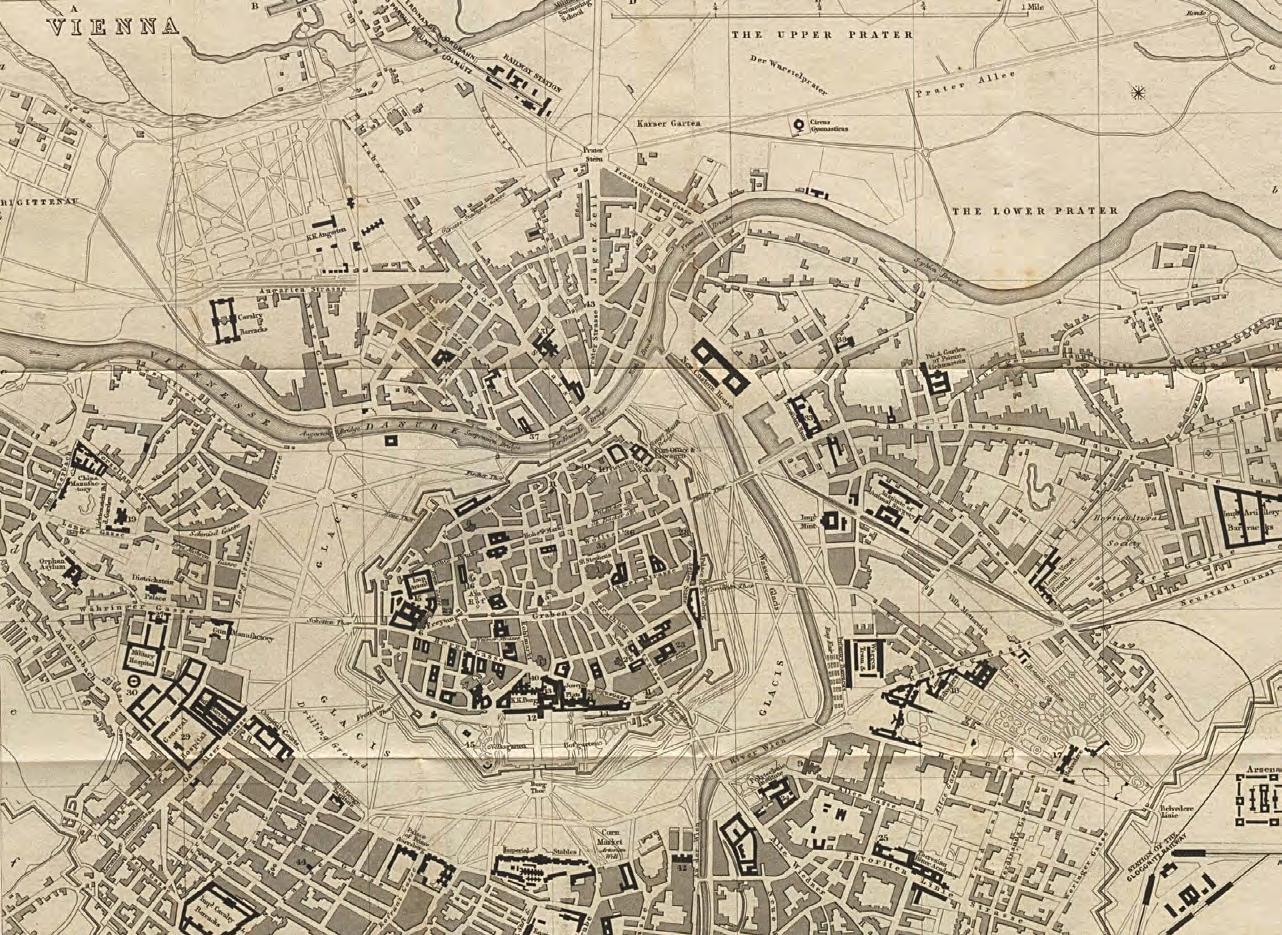
I’m sitting alone in a coffee shop.
At the door— a father and his young daughter. She wears a pink skirt, perfect for twirling. He is dressed for an office job.
Recalling my own years with a dad who dressed the same,
I’m surprised that by 8:30, he’s able to be here at all.
I watch him guide his little girl to the counter and honor her cheerful request for a chocolate croissant.
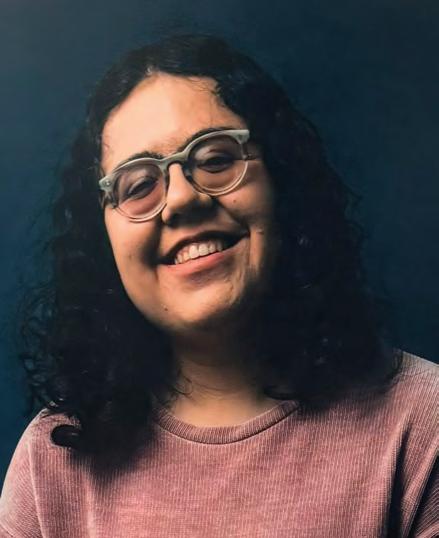
As he pays, she hums and skims her fingers over the glass bottles in the display case.
I laugh softly at her unapologetic childhood joy; mourning missed mornings, since my own father never seemed to have the time.

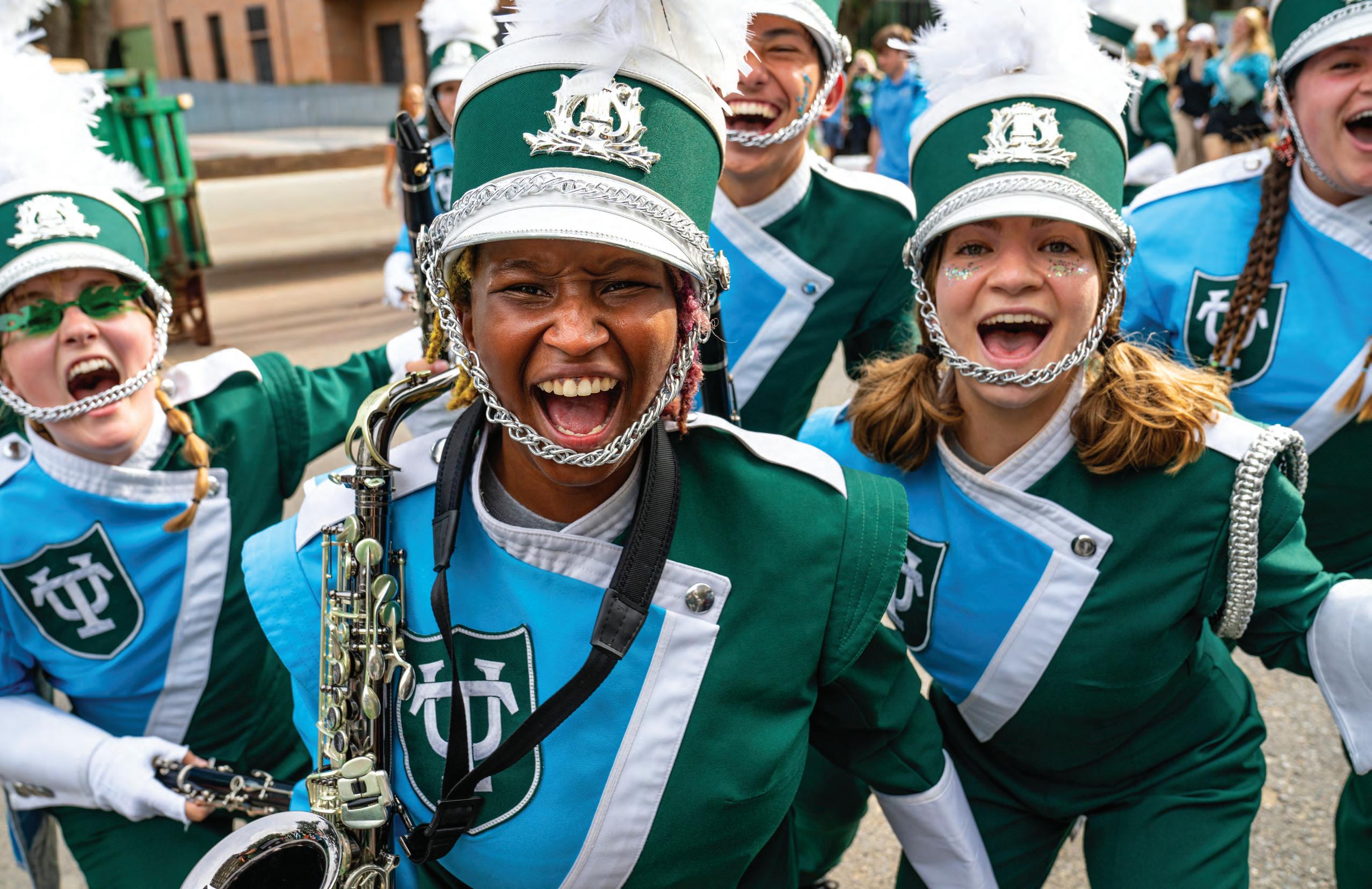
AFTER 21 YEARS OF VISIONARY LEADERSHIP, BARRY SPANIER, THE LONGTIME DIRECTOR OF BANDS, CONCLUDES HIS FINAL SEASON LEADING THE TULANE UNIVERSITY MARCHING BAND. SPANIER, WHO JOINED THE UNIVERSITY IN 2004 TO REVIVE A MARCHING BAND PROGRAM THAT HAD LAIN DORMANT FOR DECADES, WILL RETIRE AT THE END OF THE 2025 FOOTBALL SEASON.
TEMPLE UNIVERSITY DURING THE 2024 HOMECOMING GAME IN YULMAN
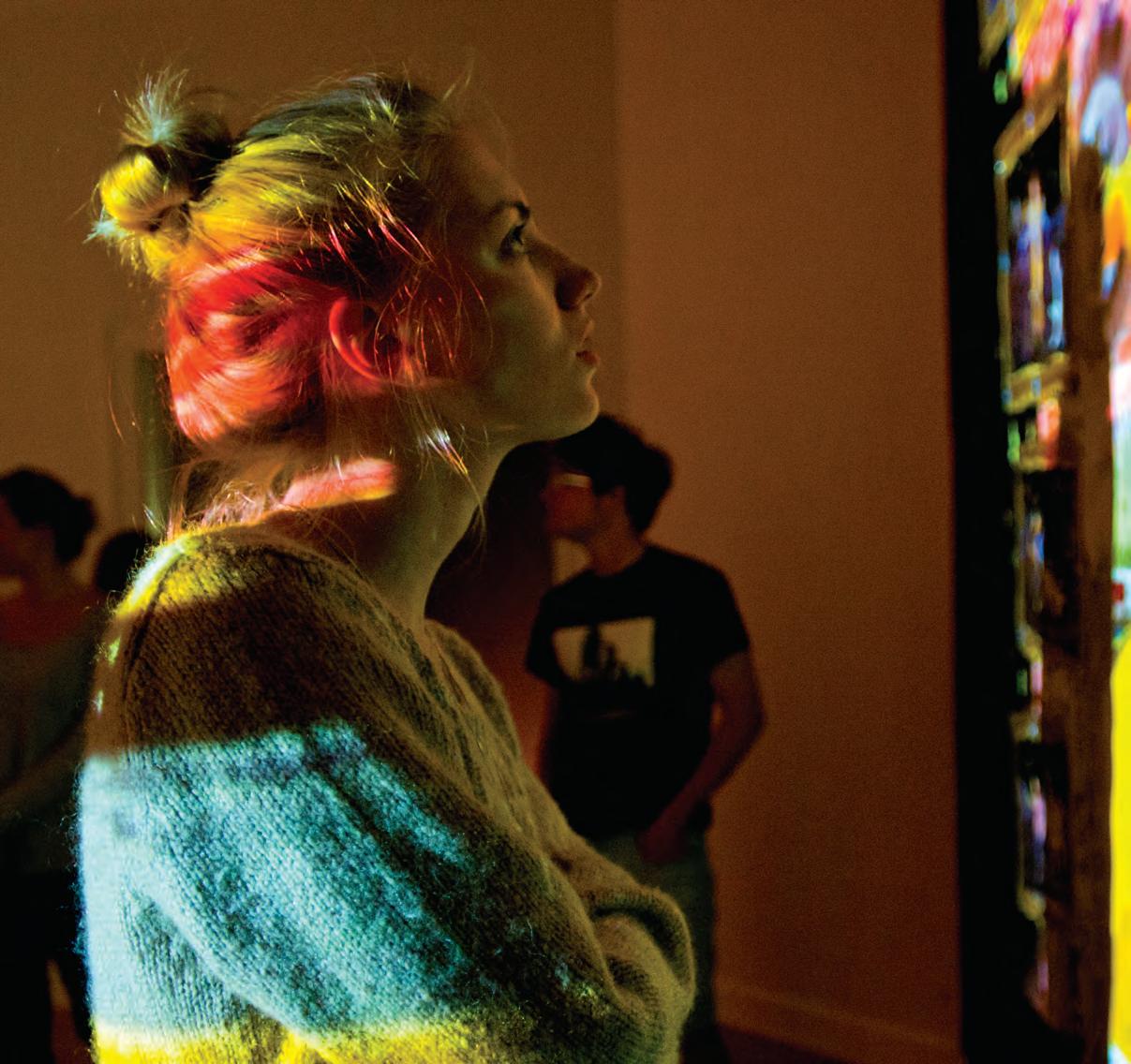
AN ART STUDENT STANDS IN THE GLOW OF A VIBRANT, HYPNOTIC LOOP OF IMAGES PROJECTED ONTO A WALL DURING AN EXHIBITION IN THE CARROLL GALLERY.